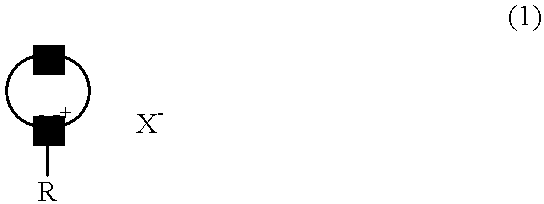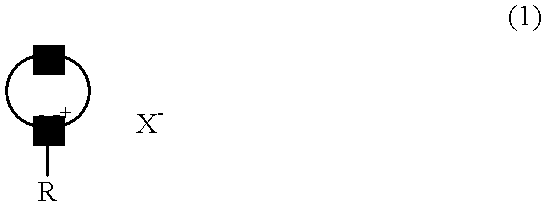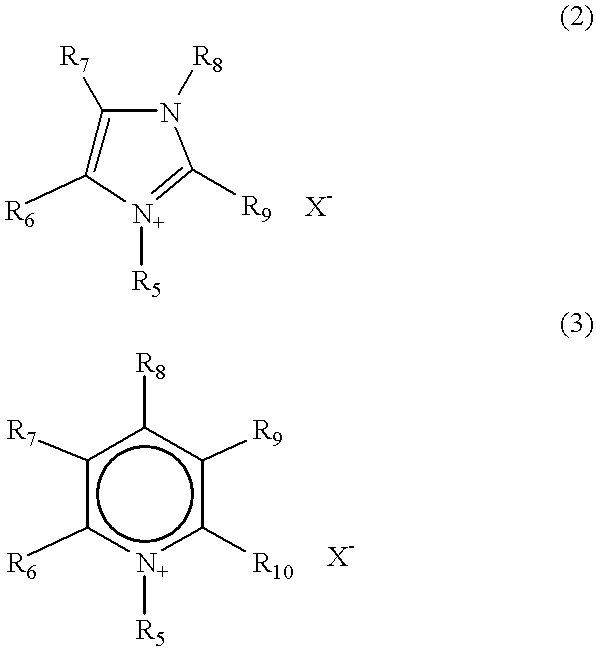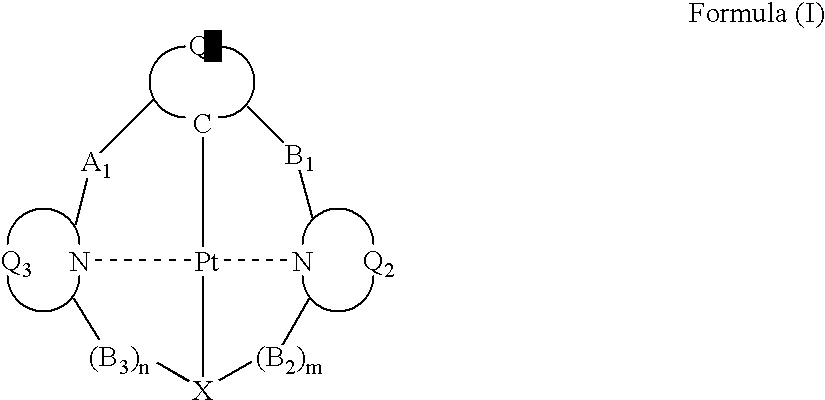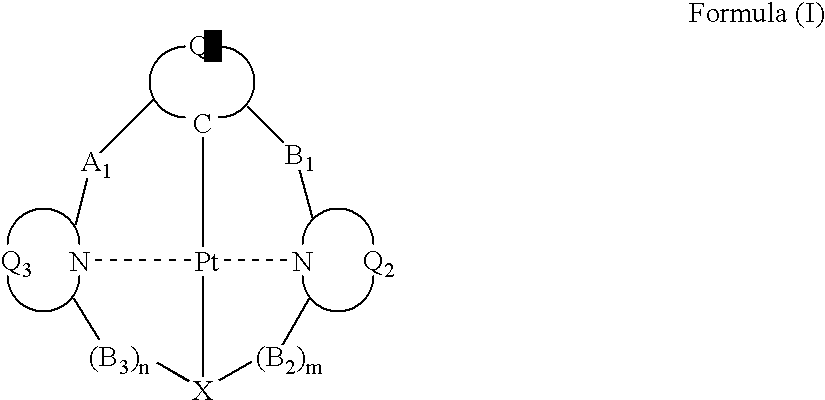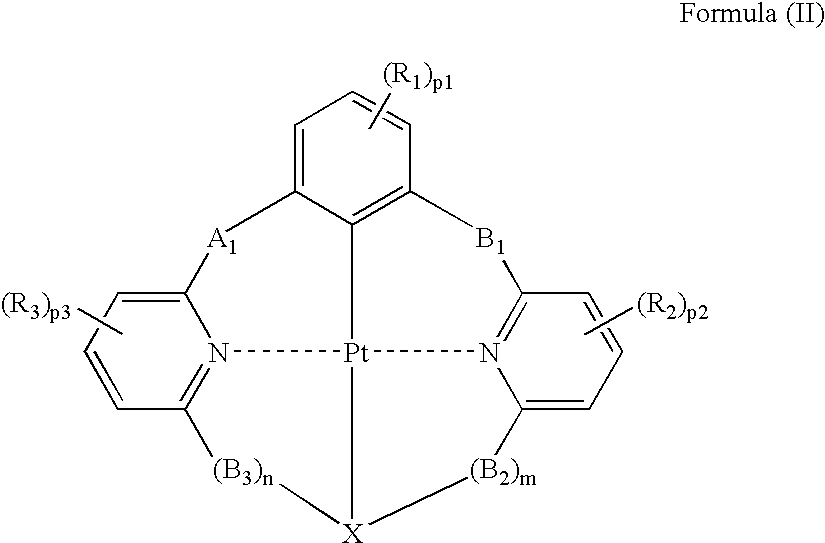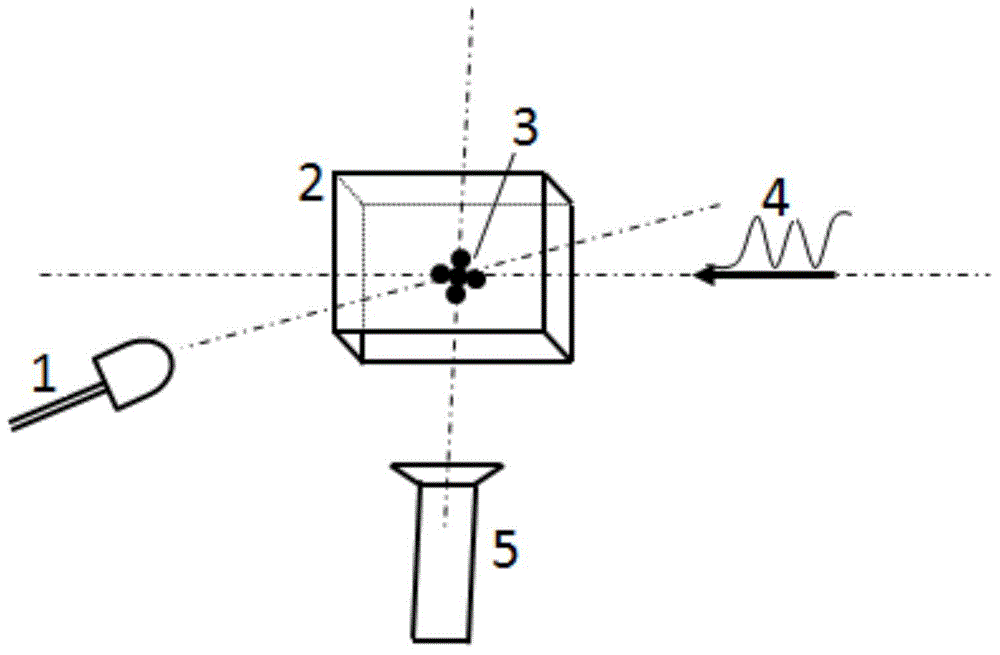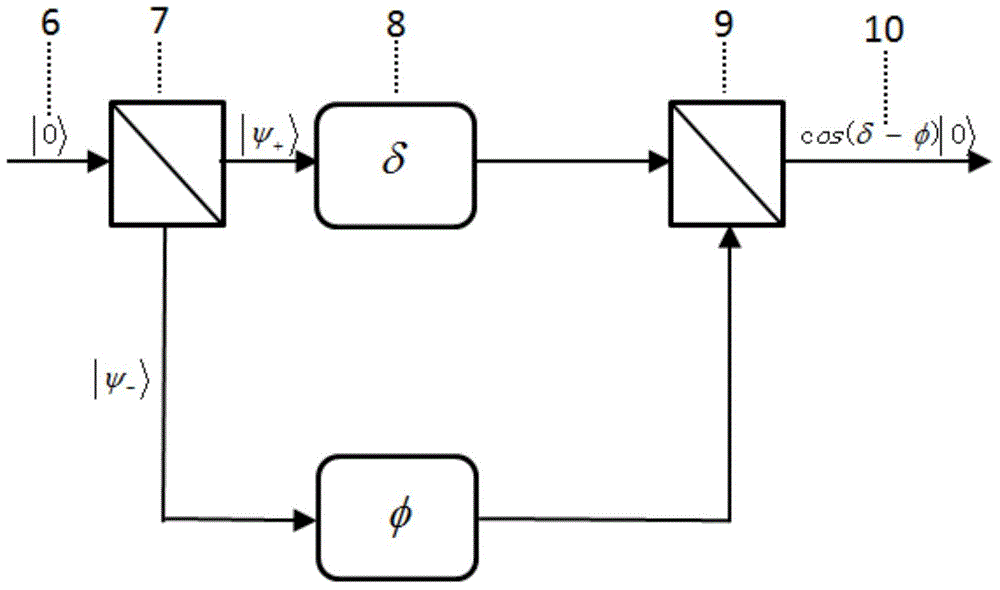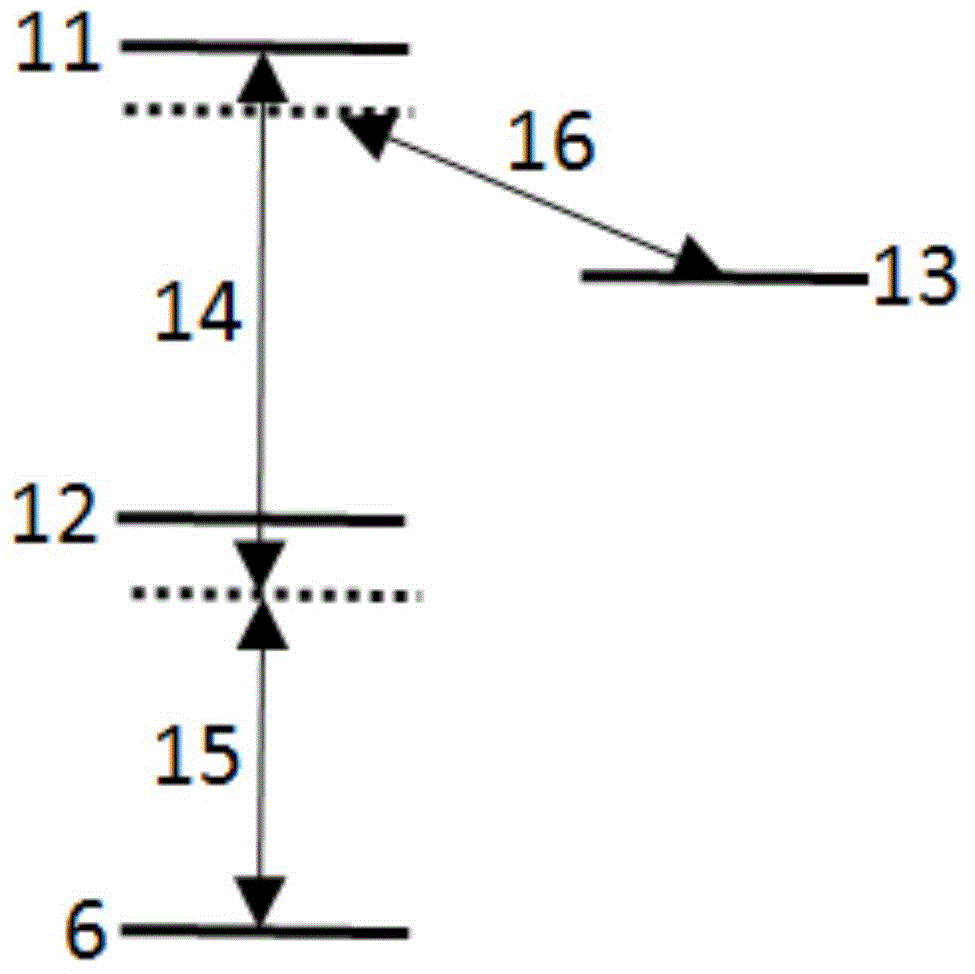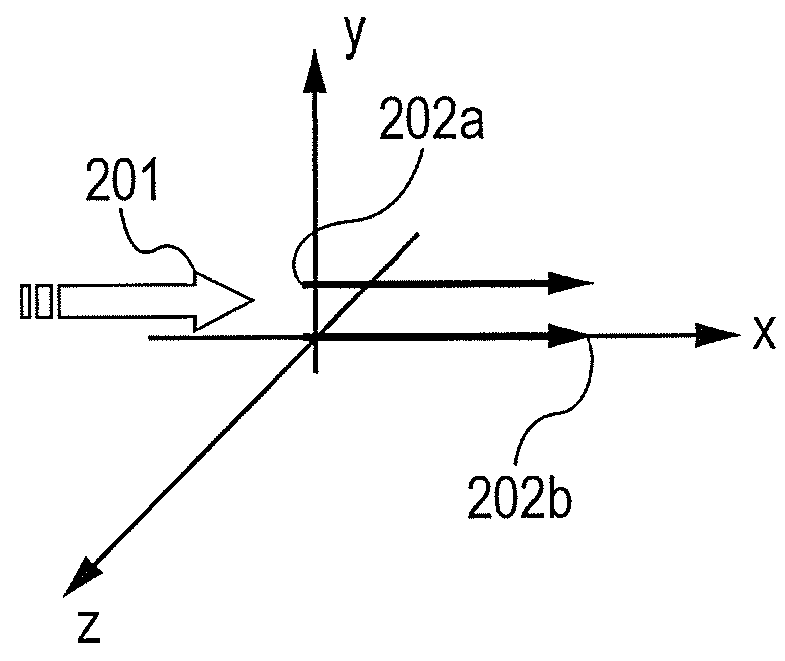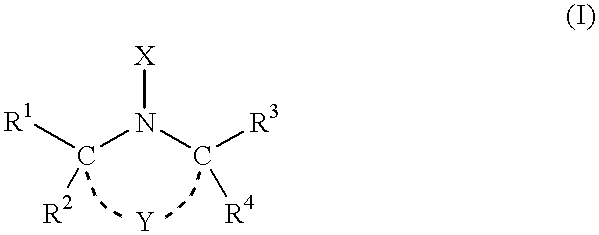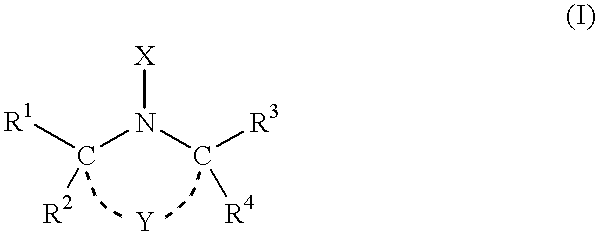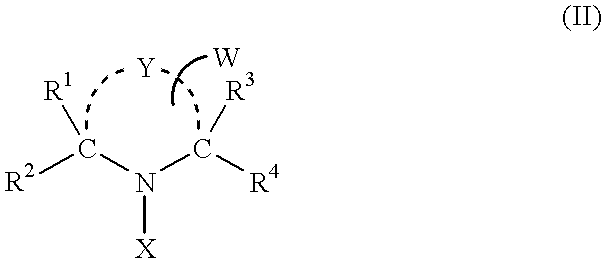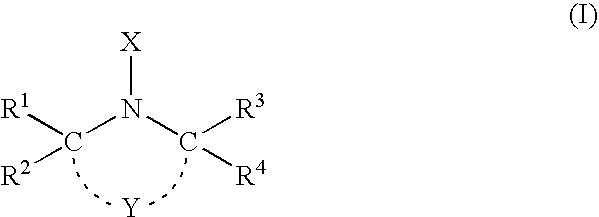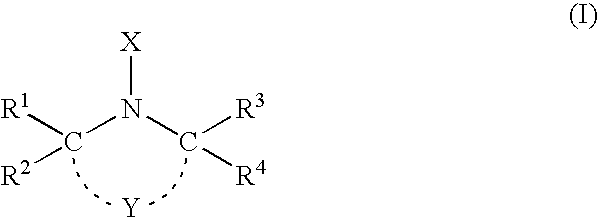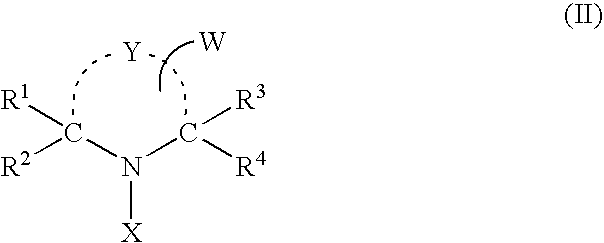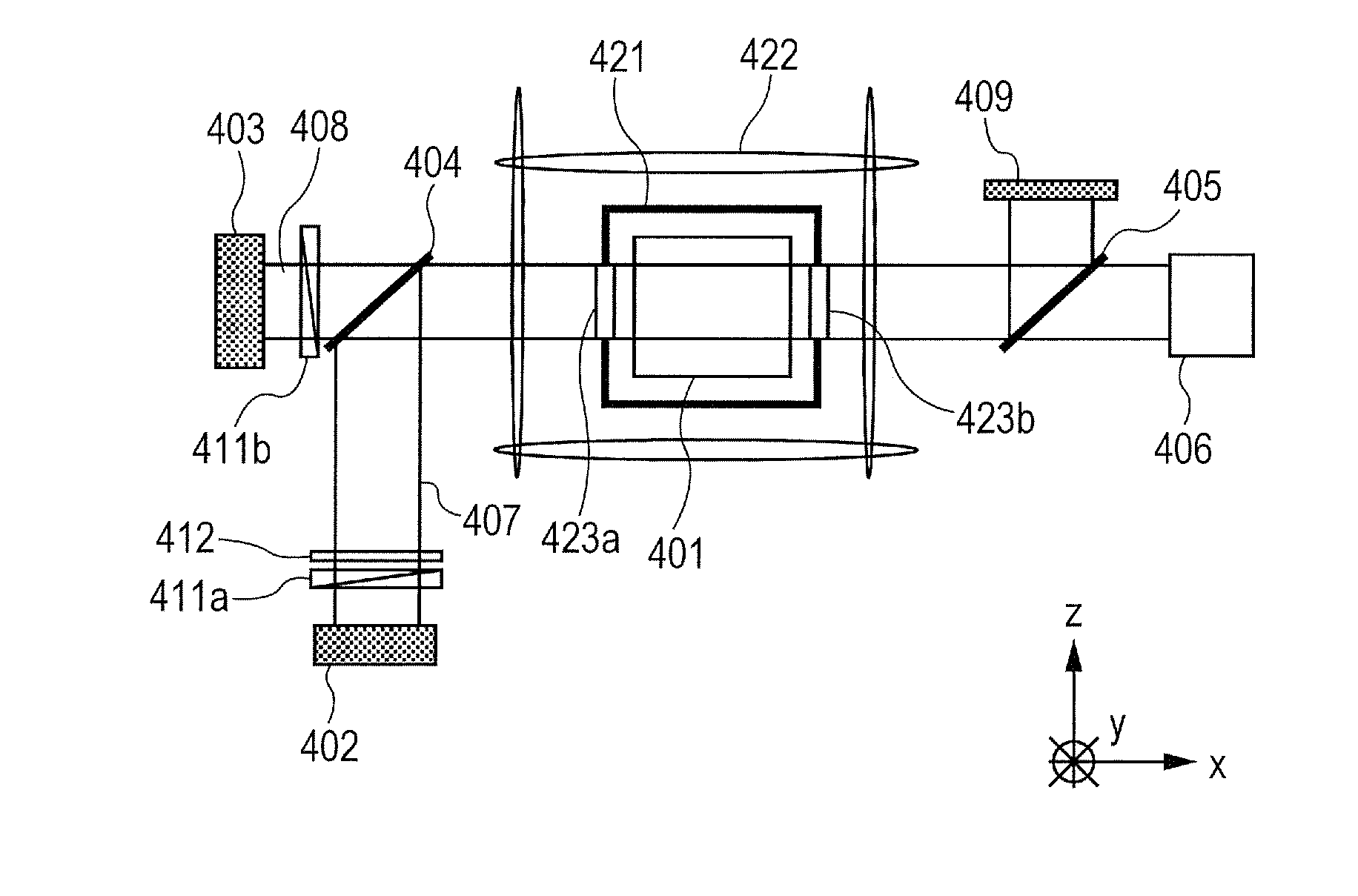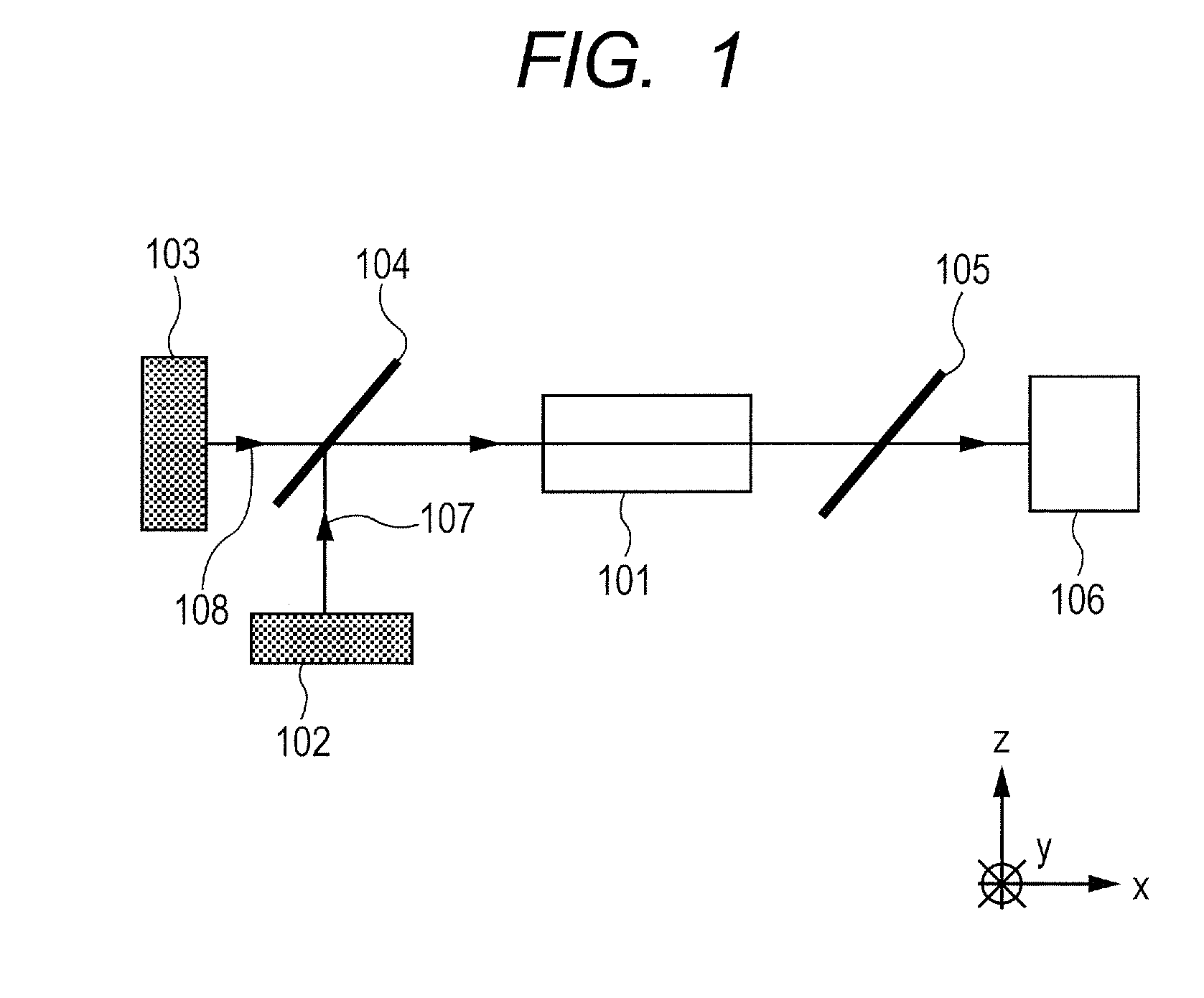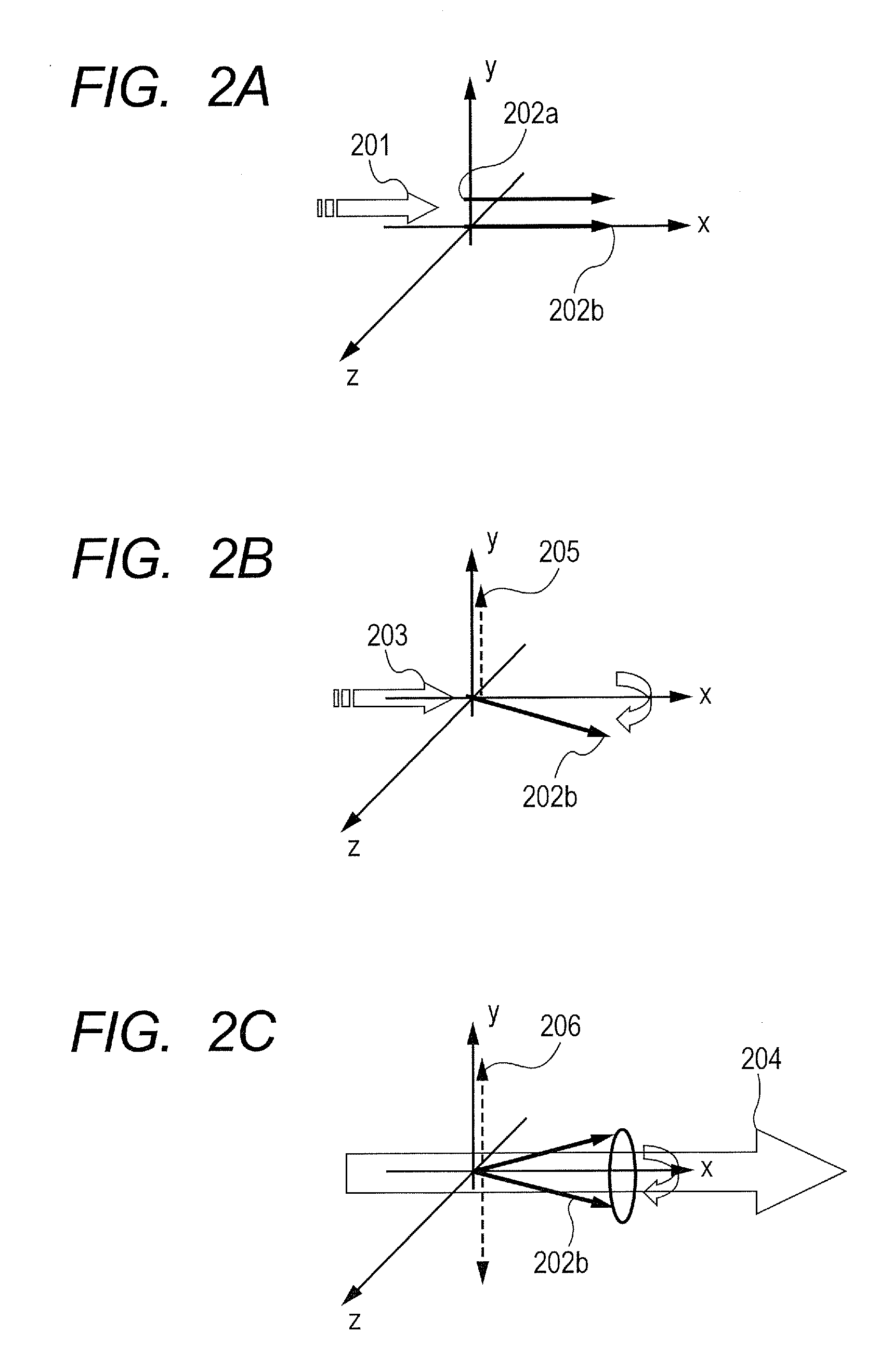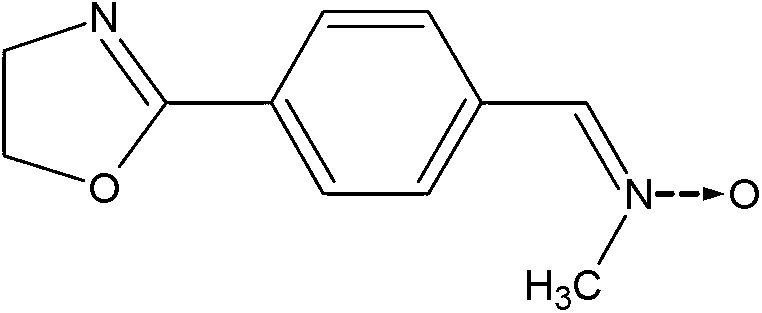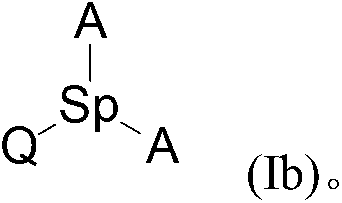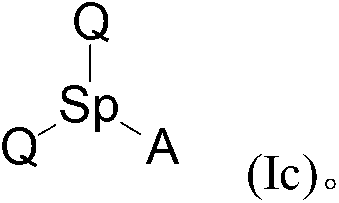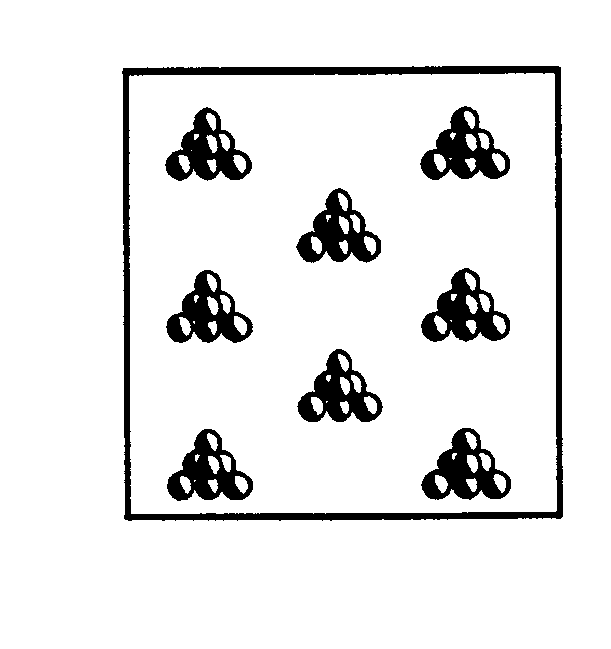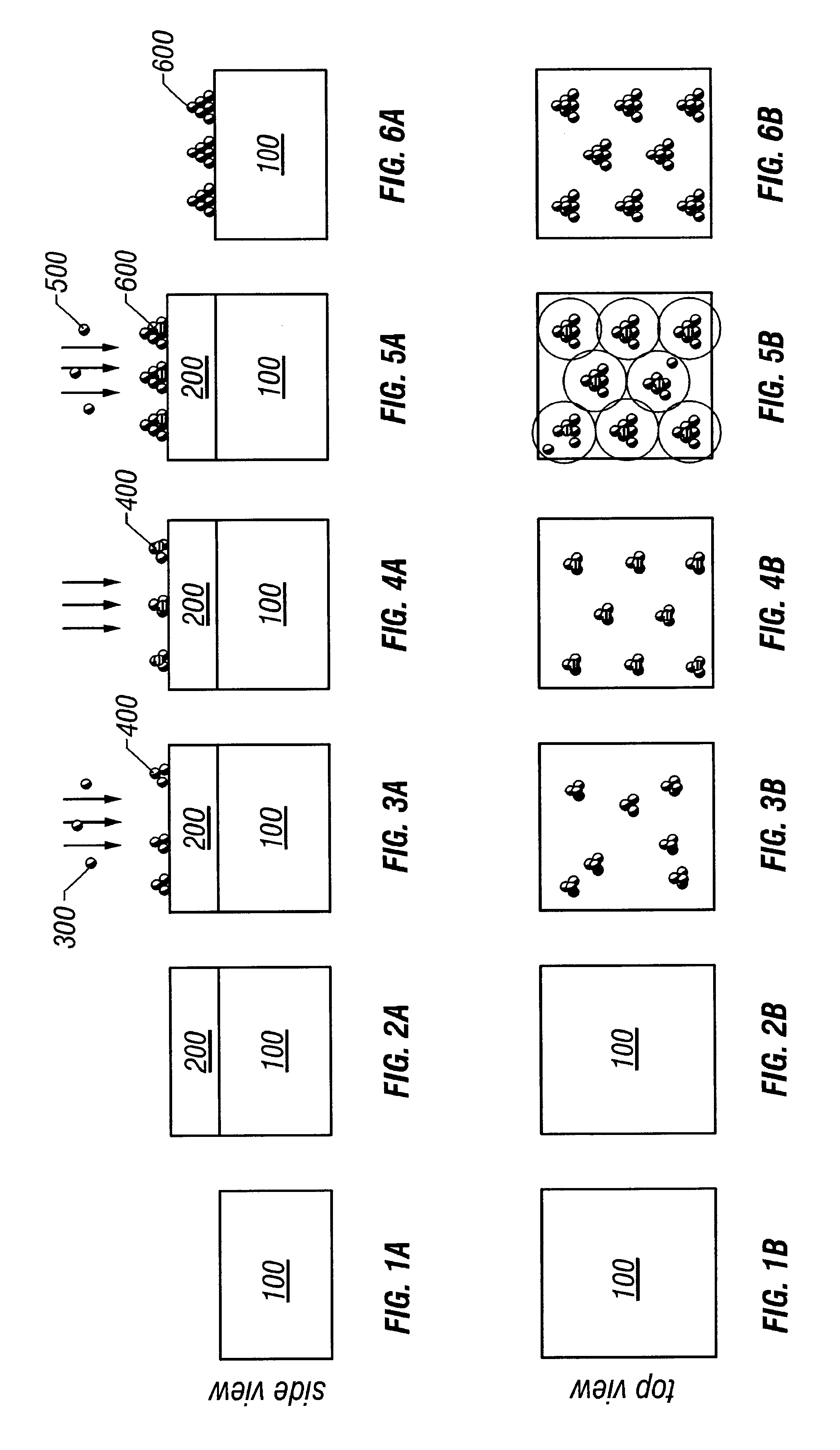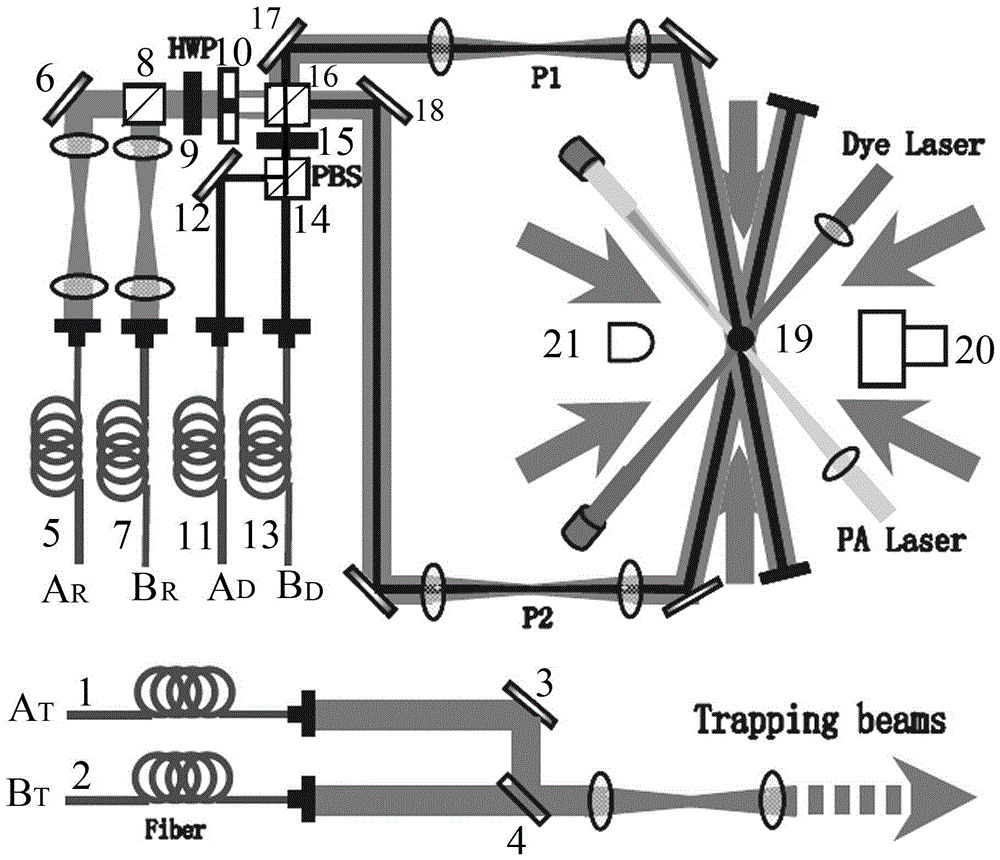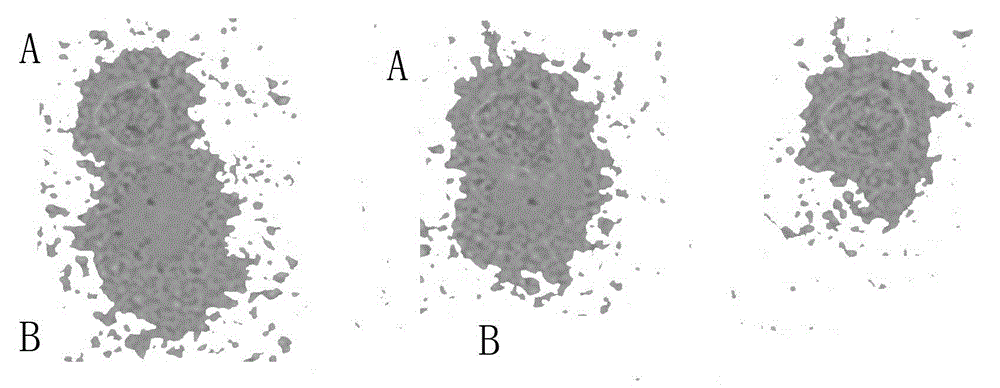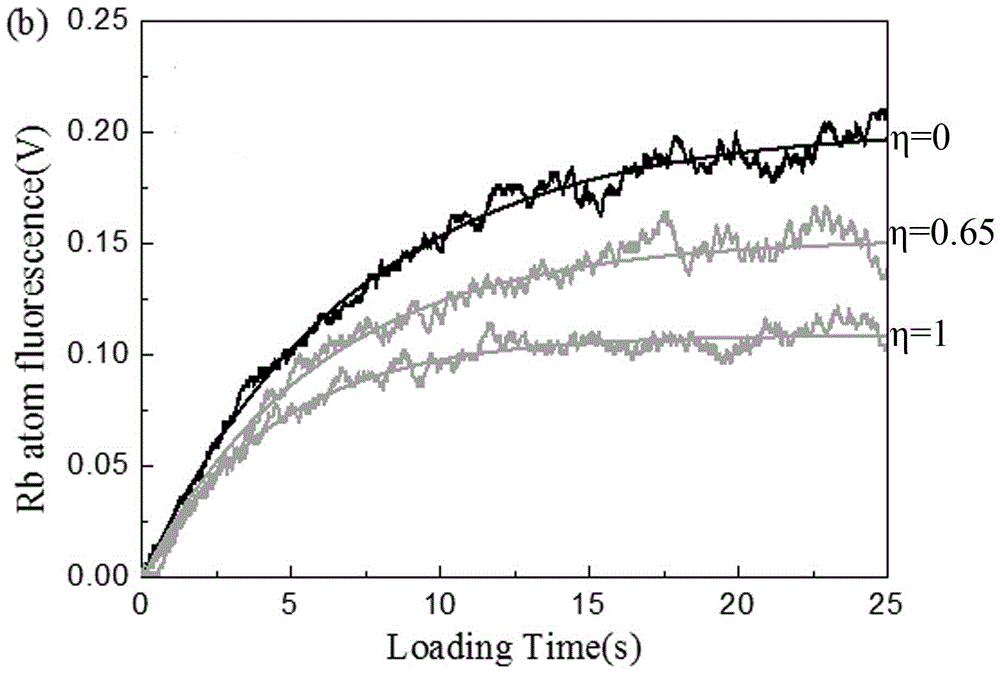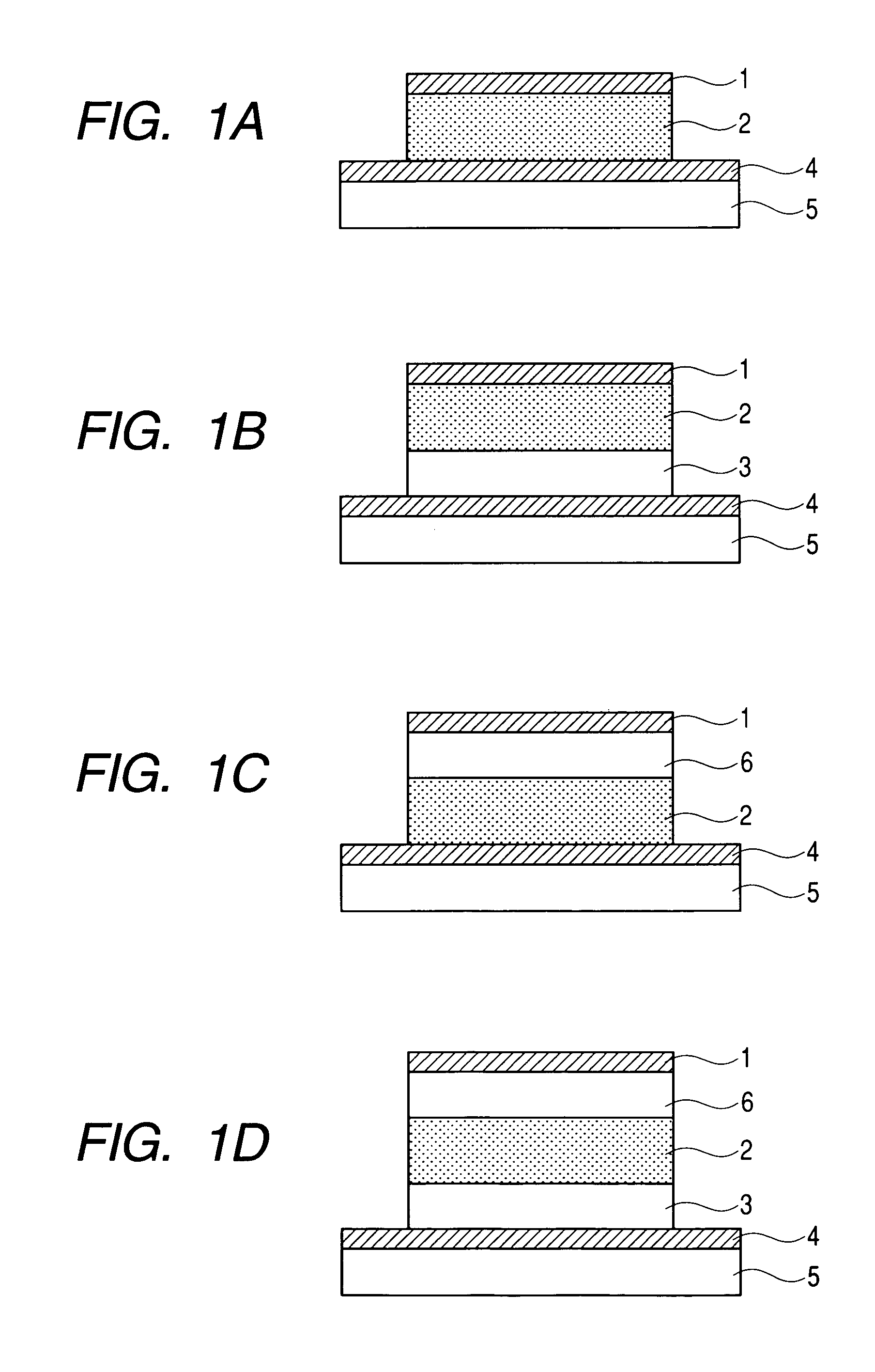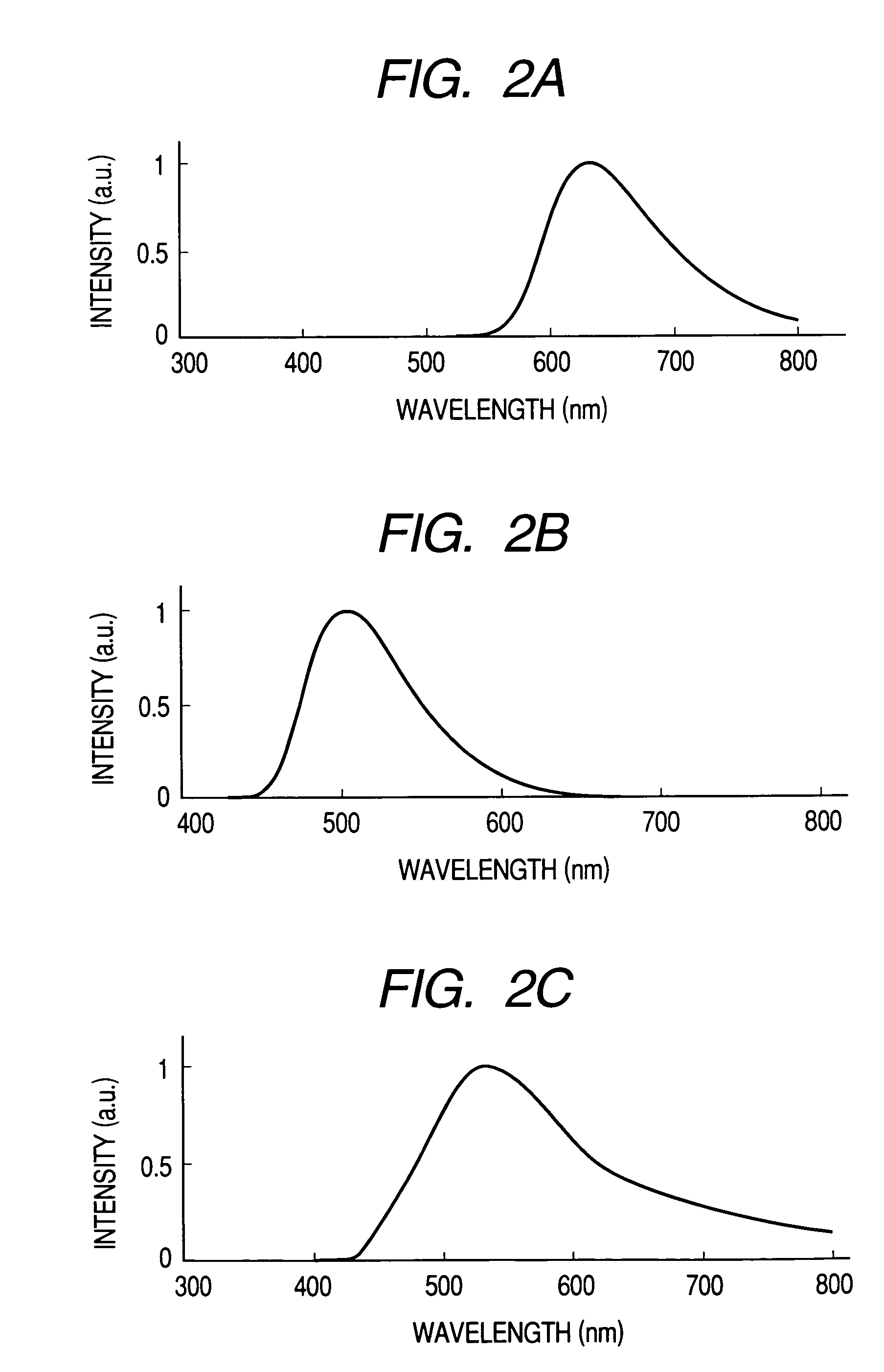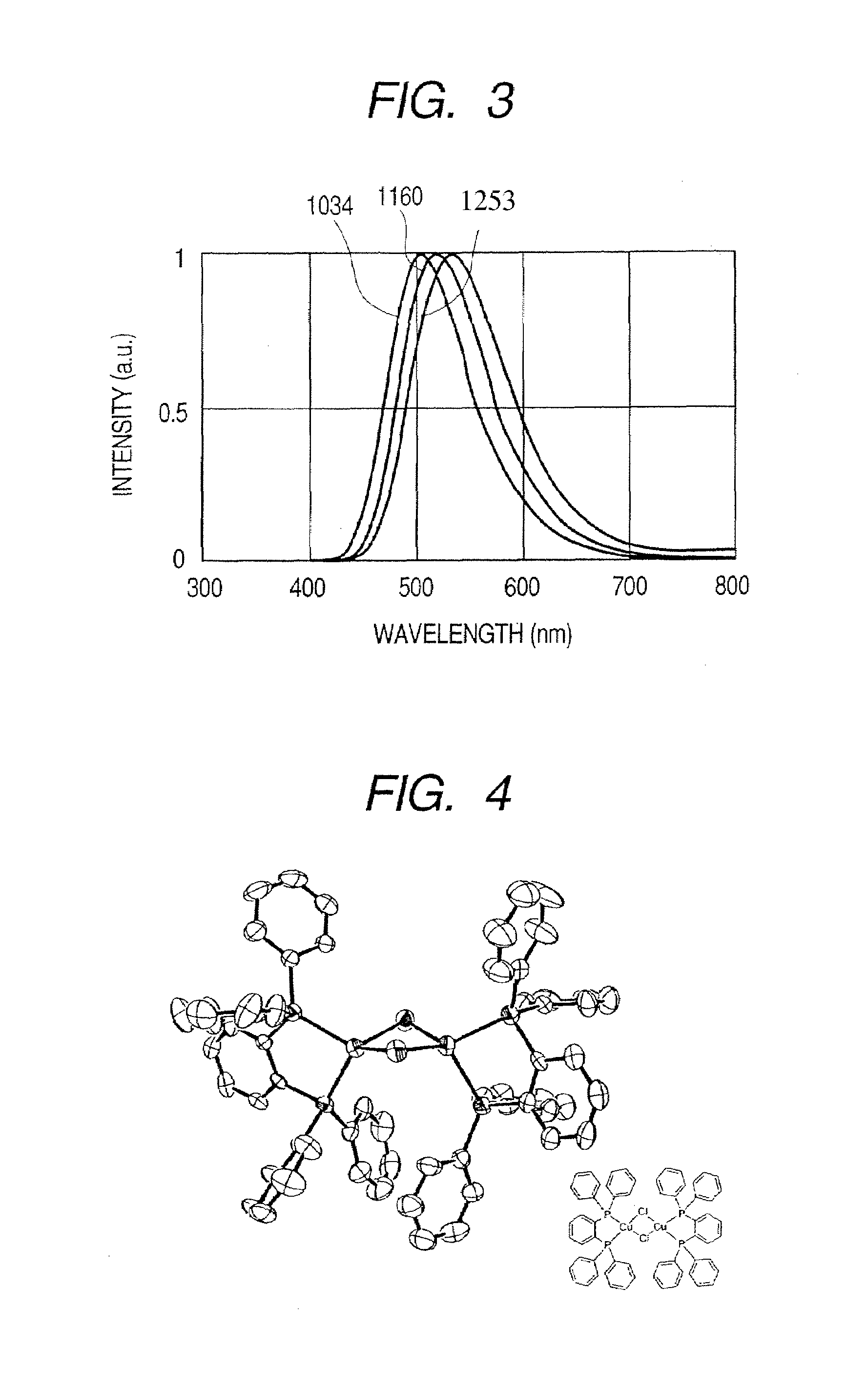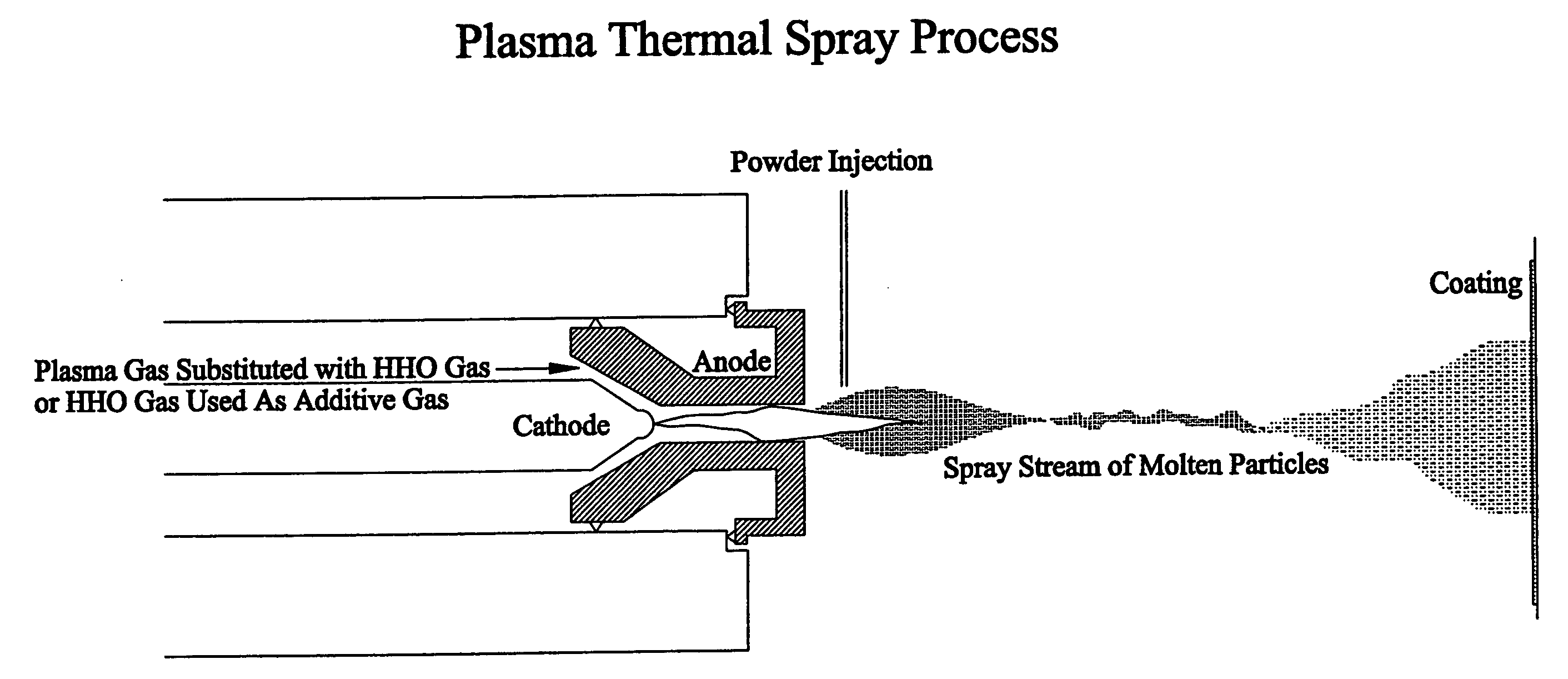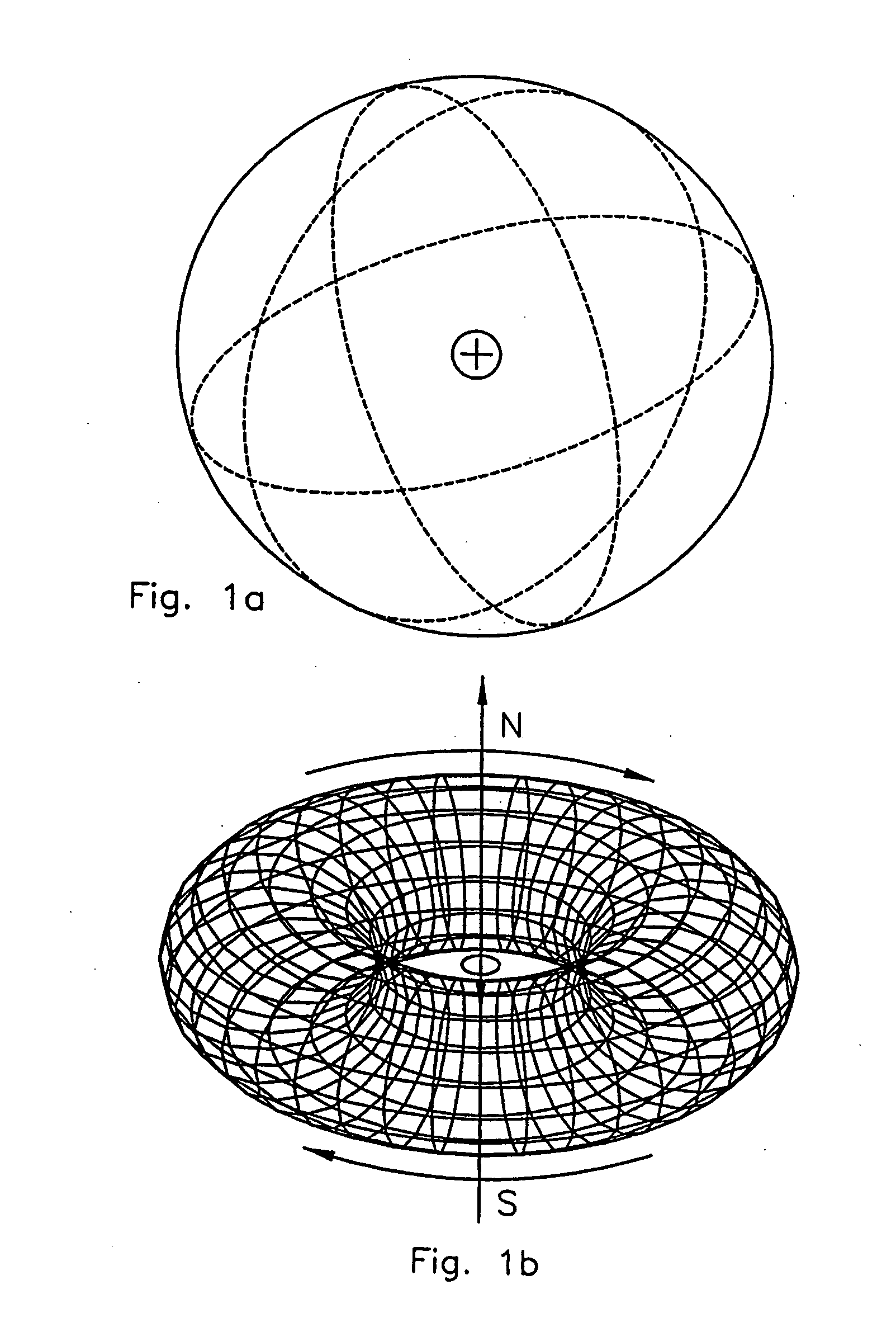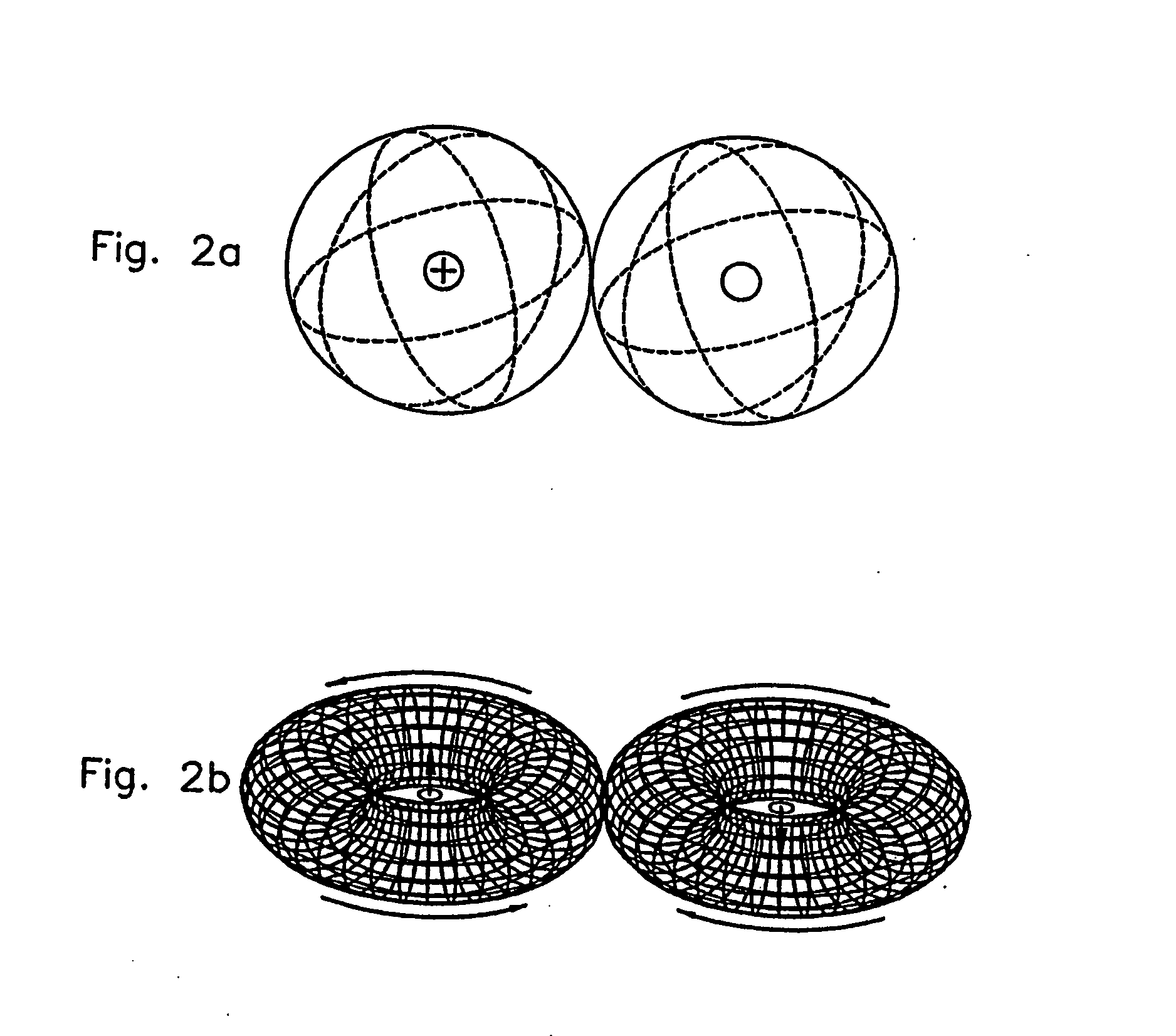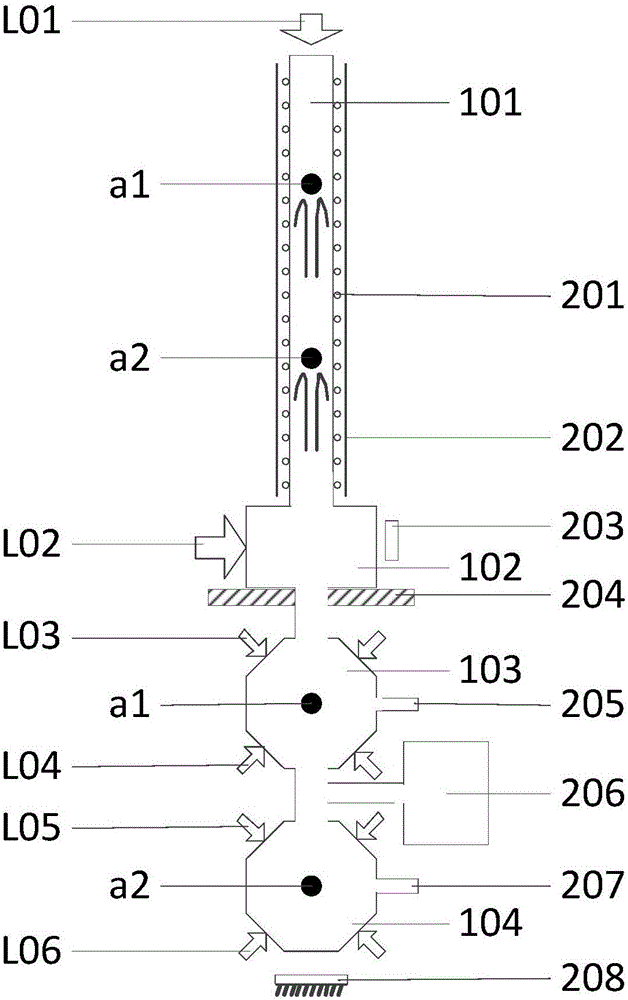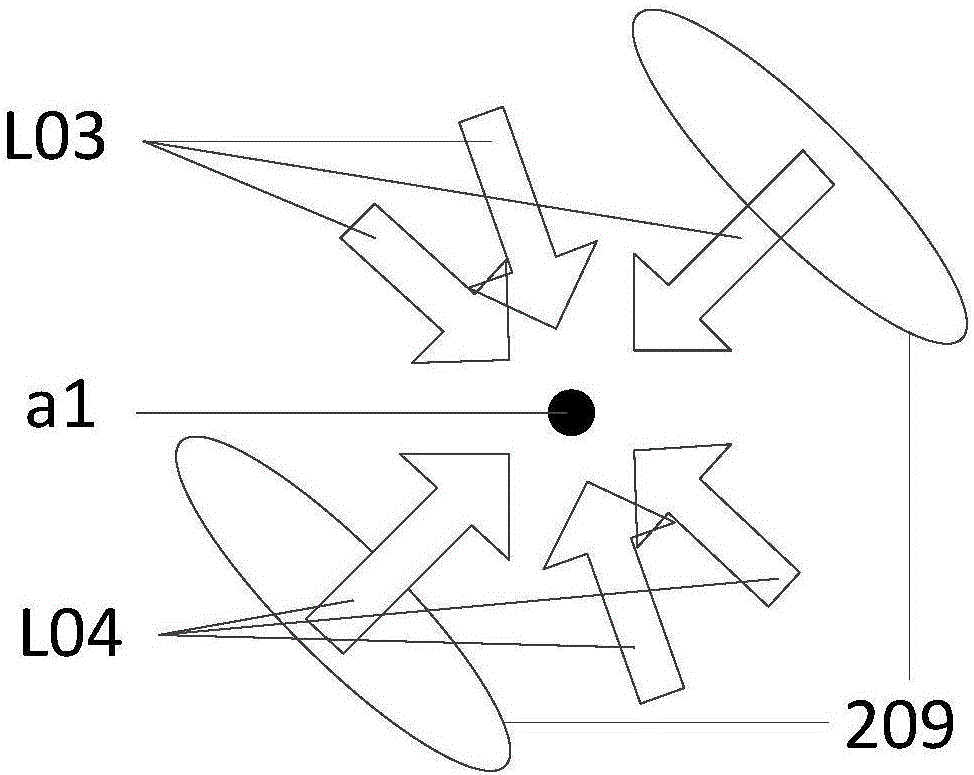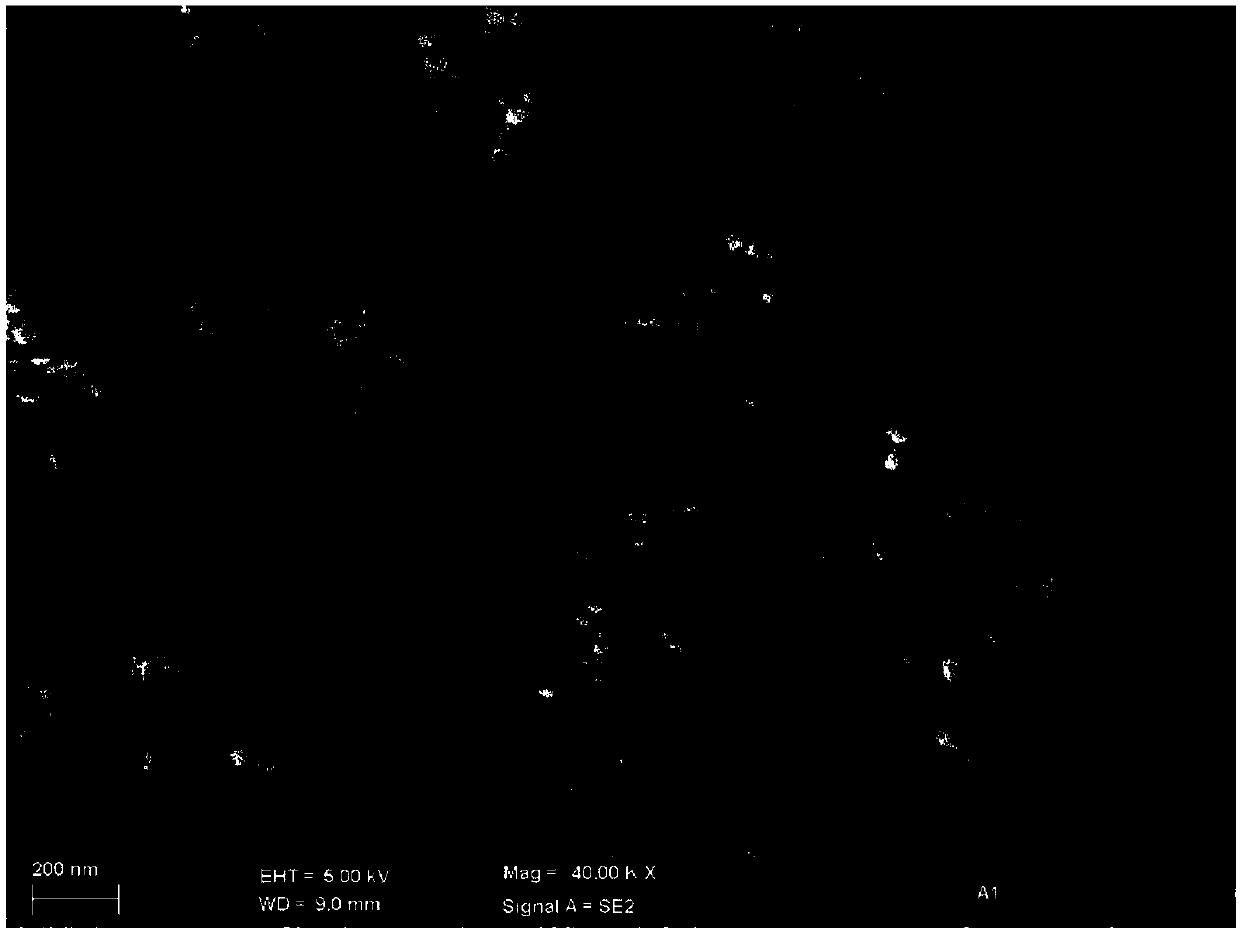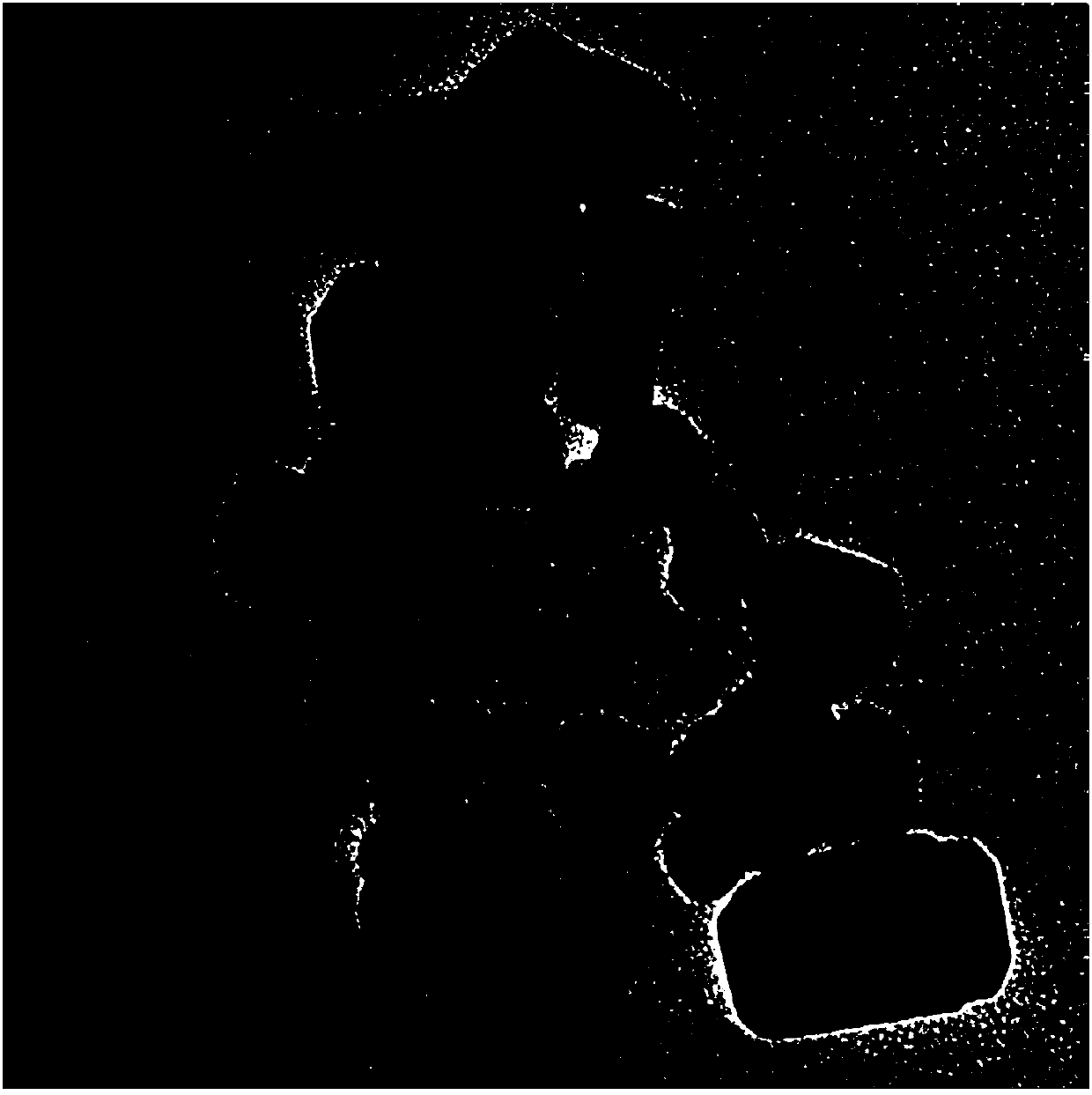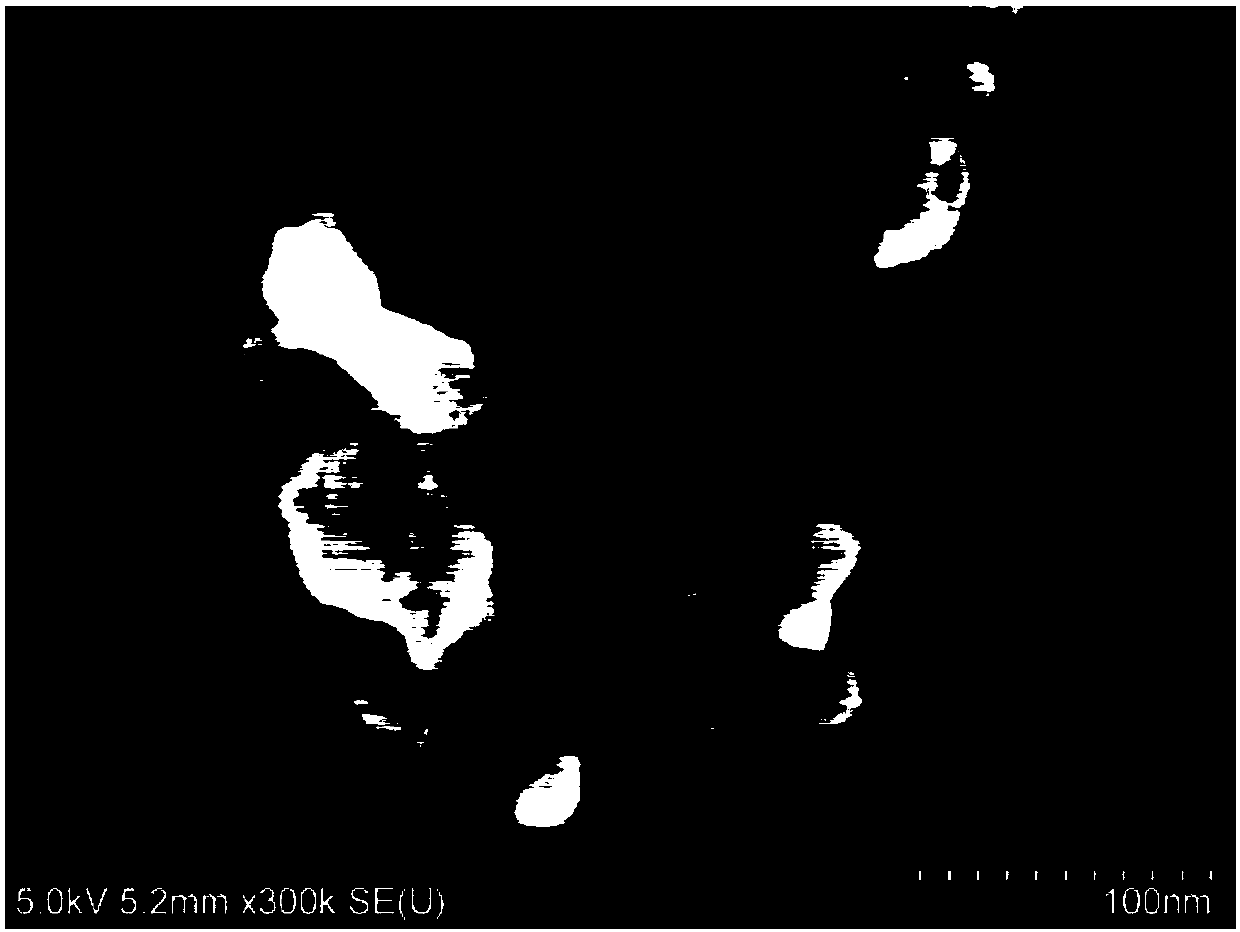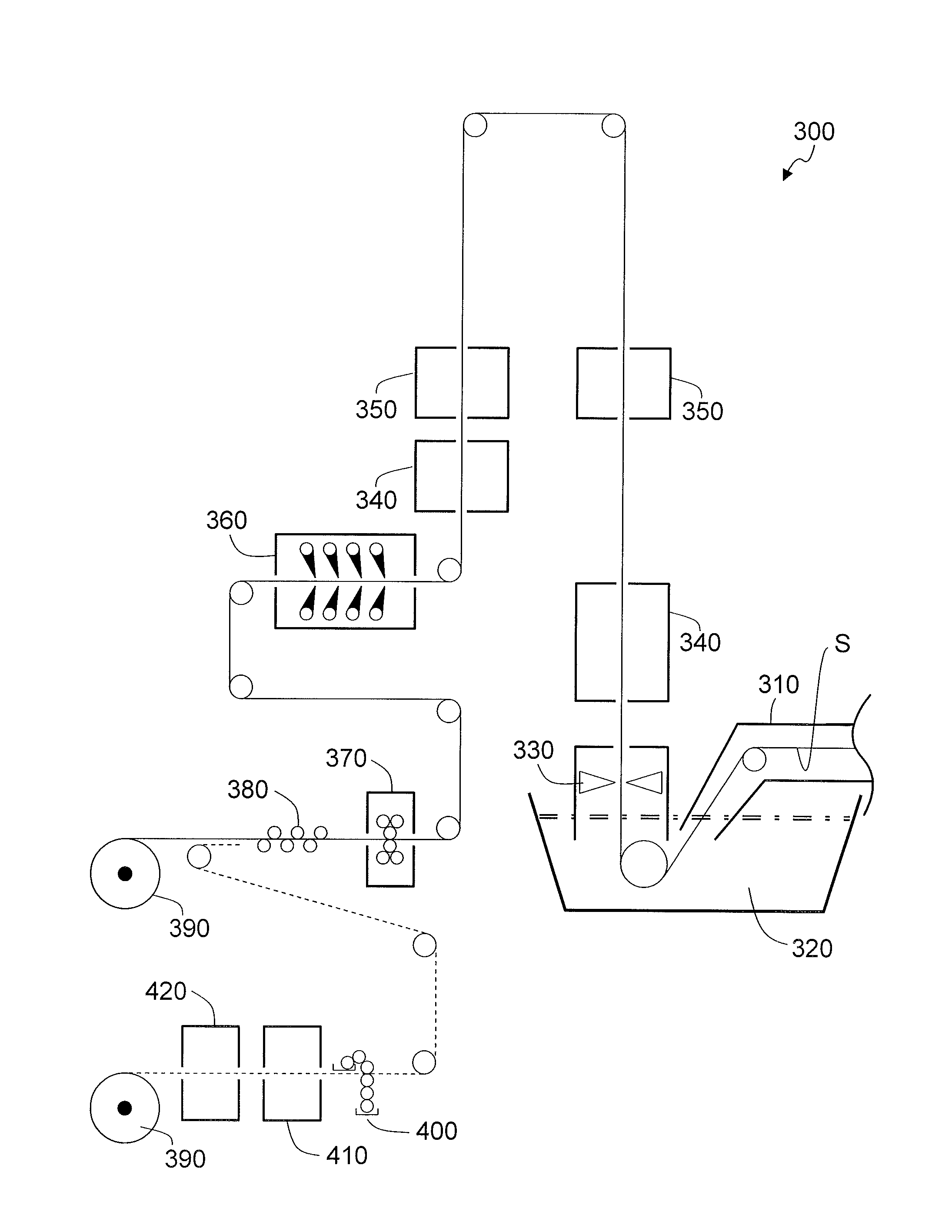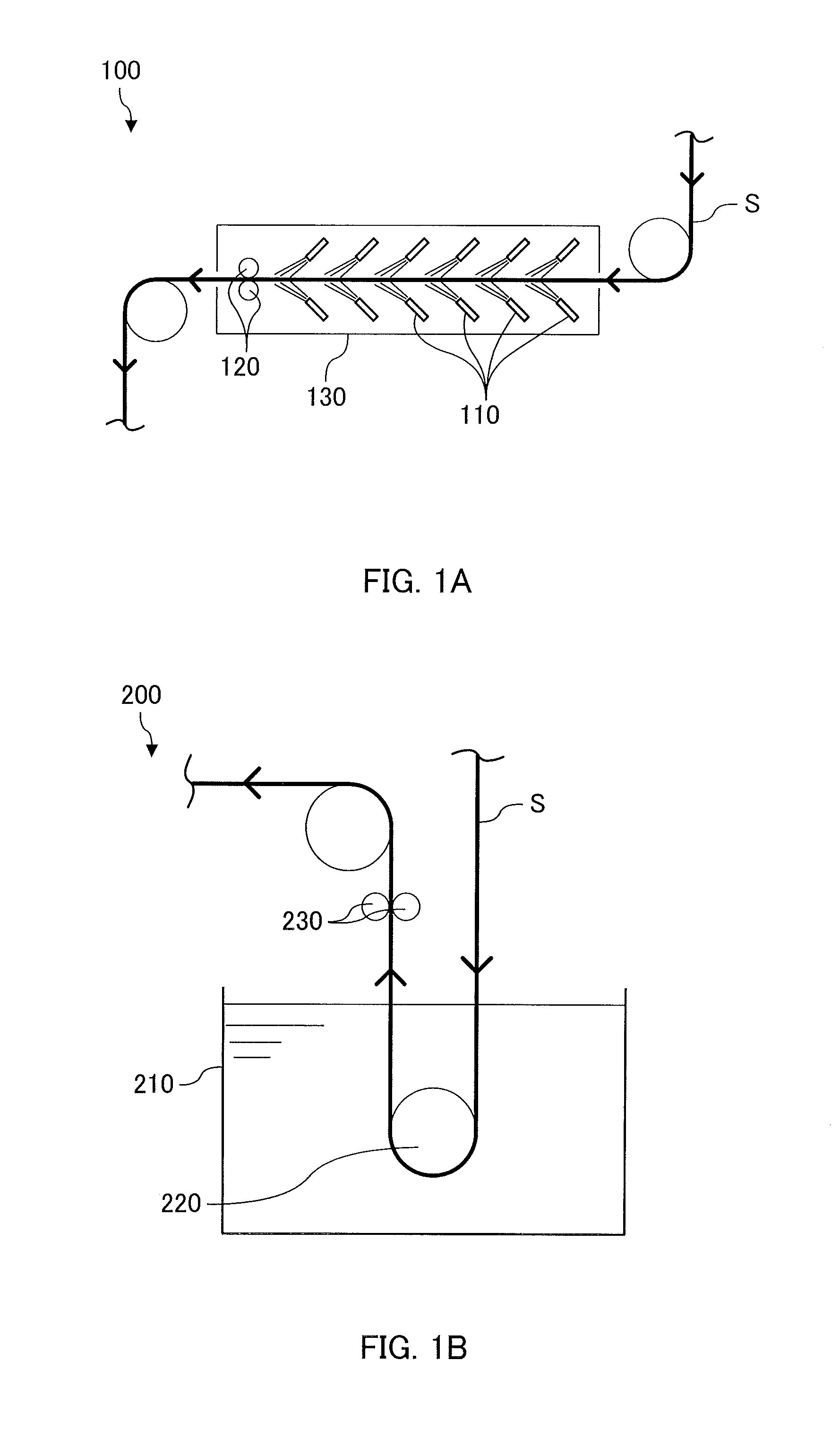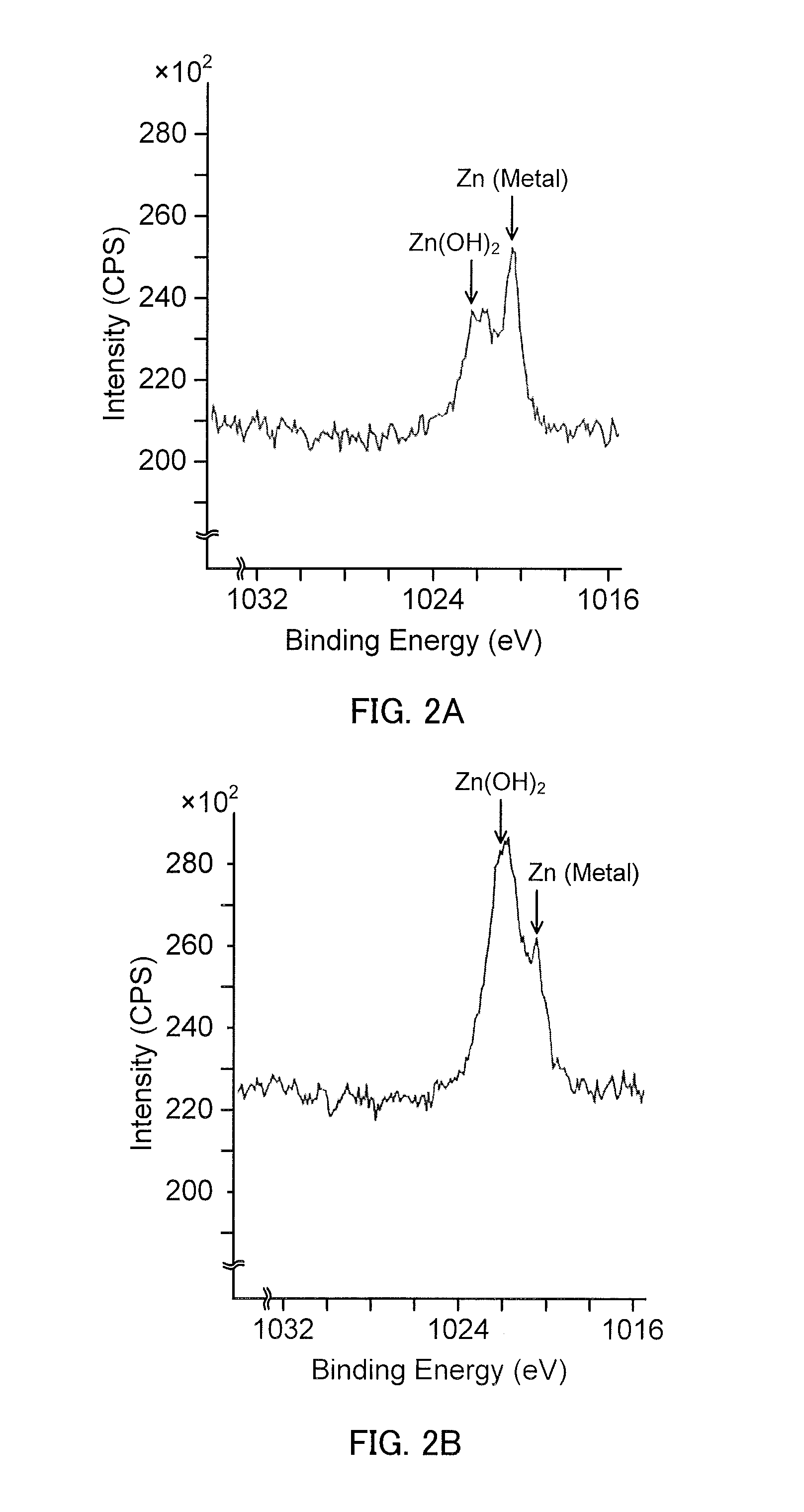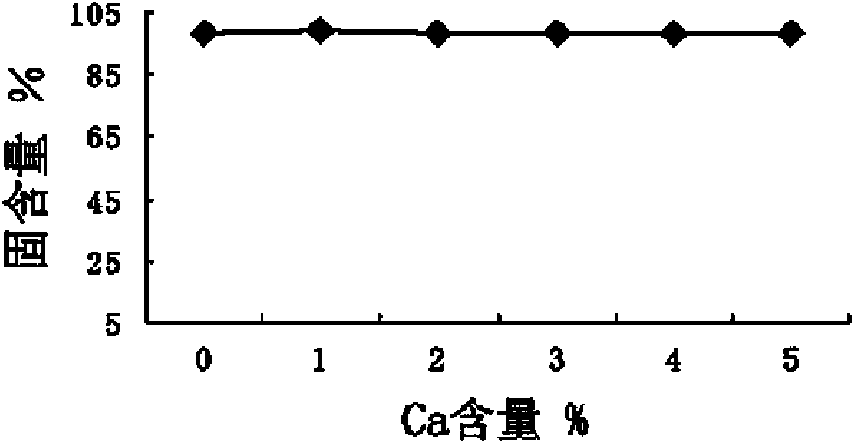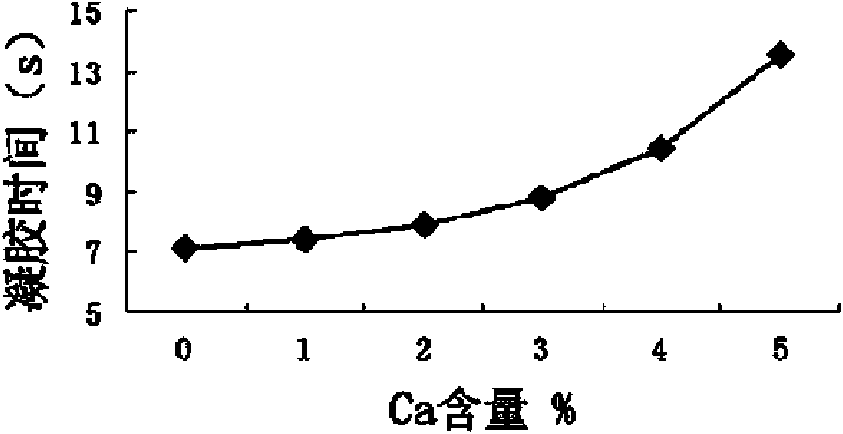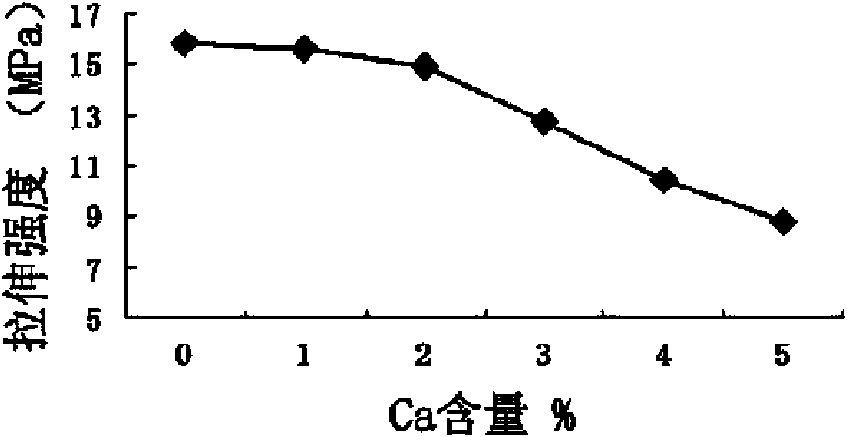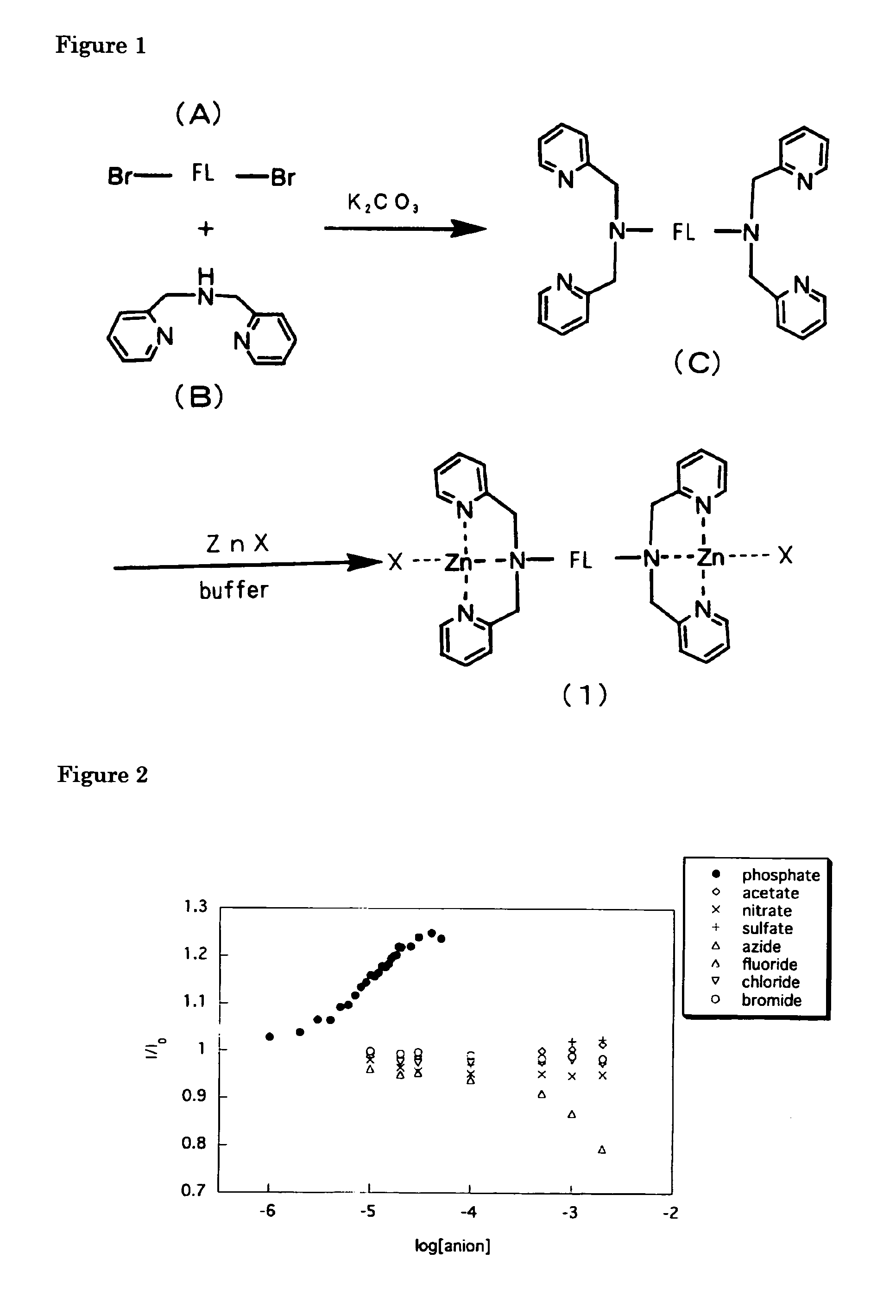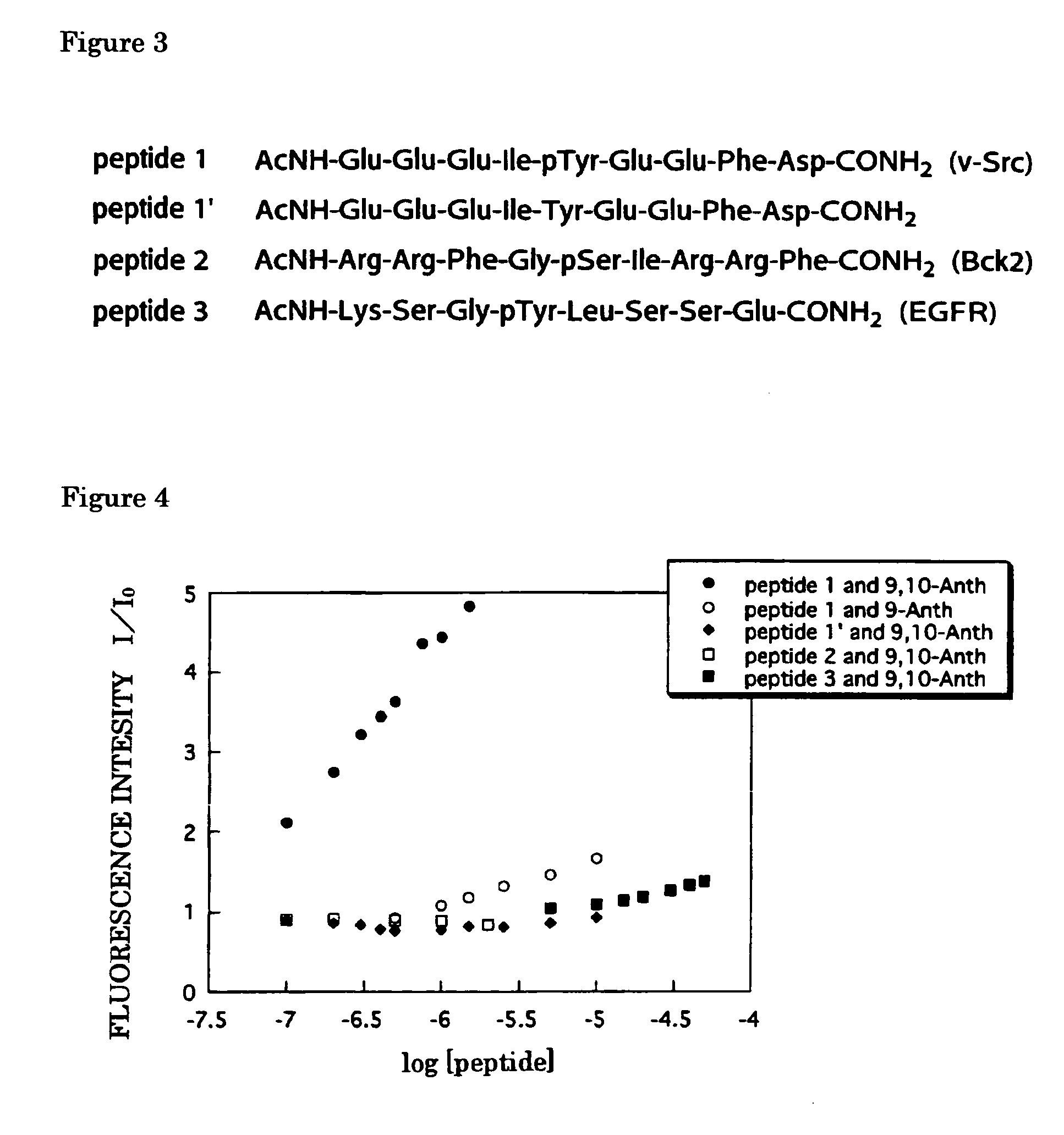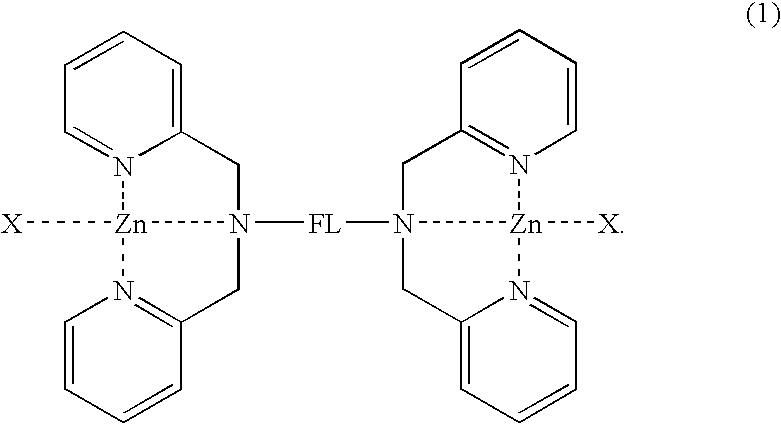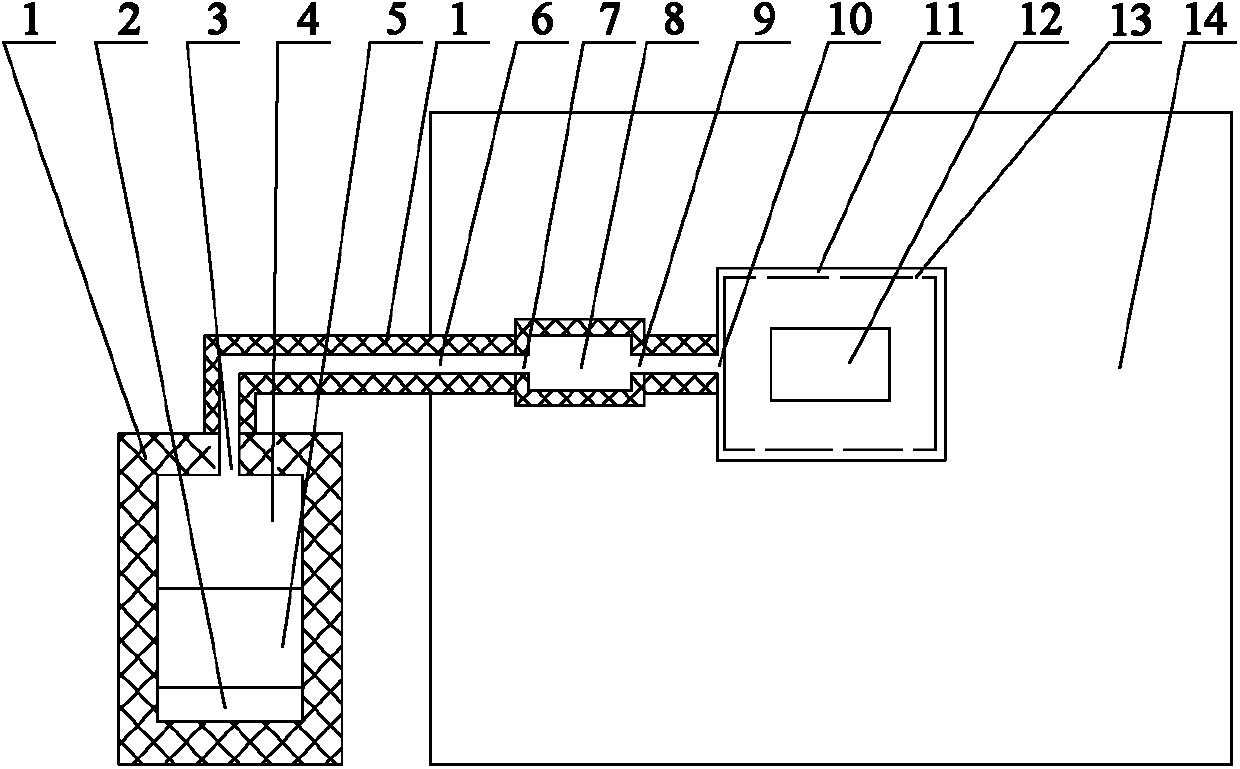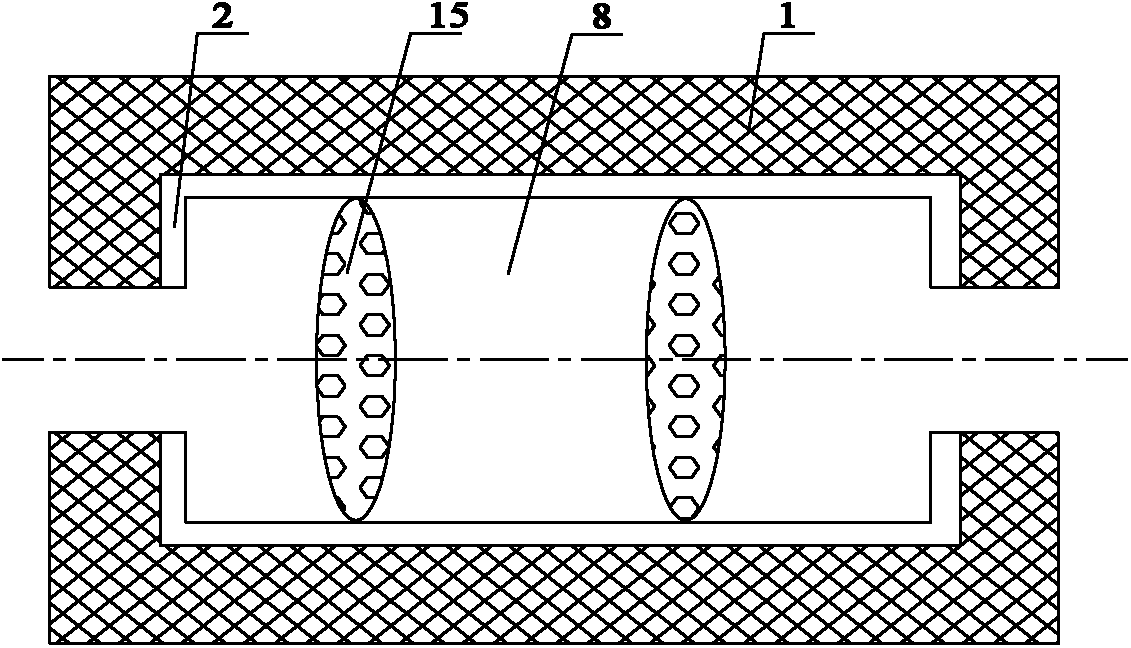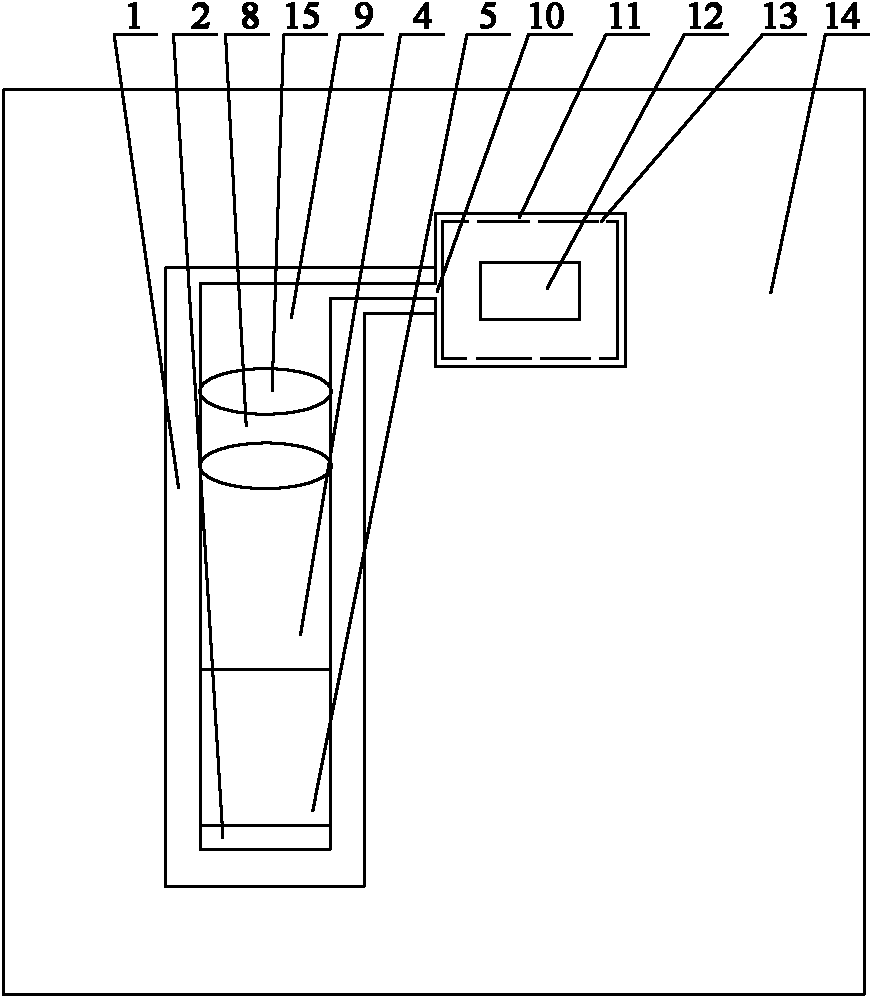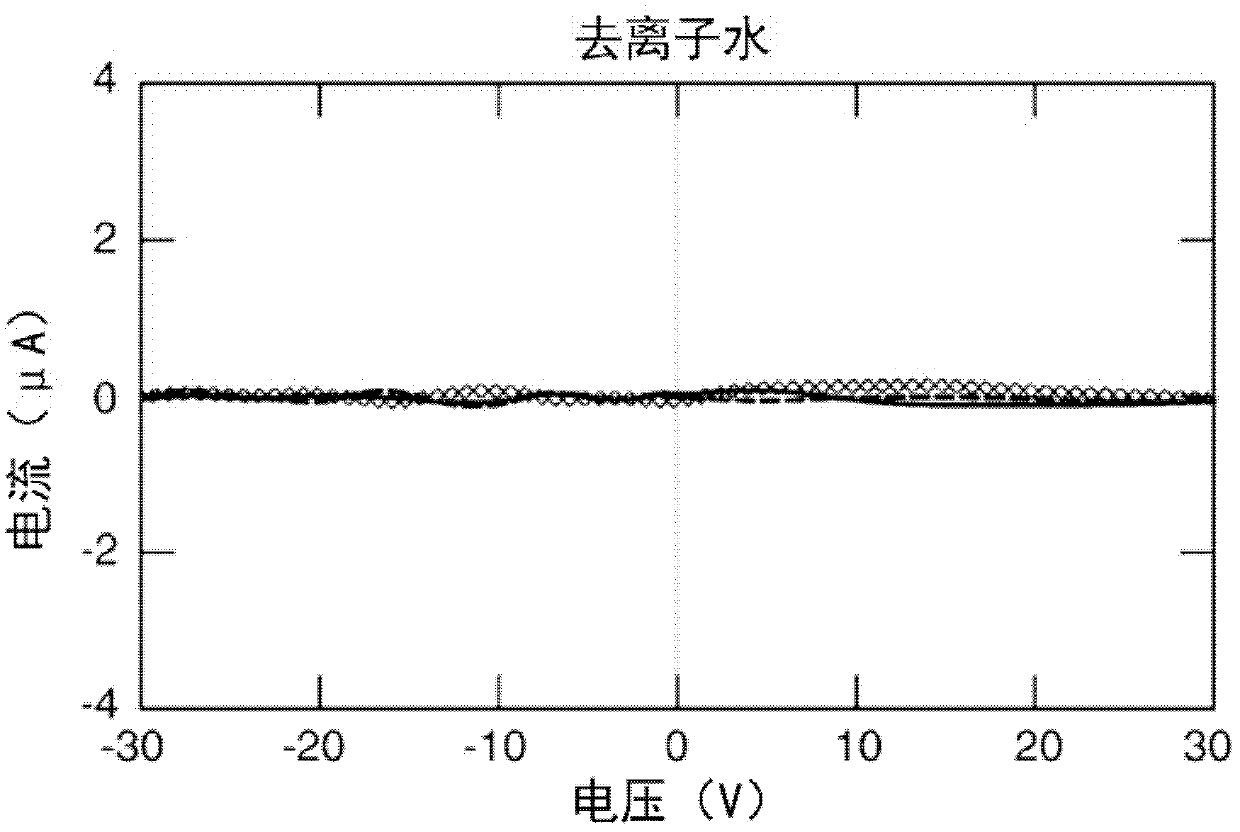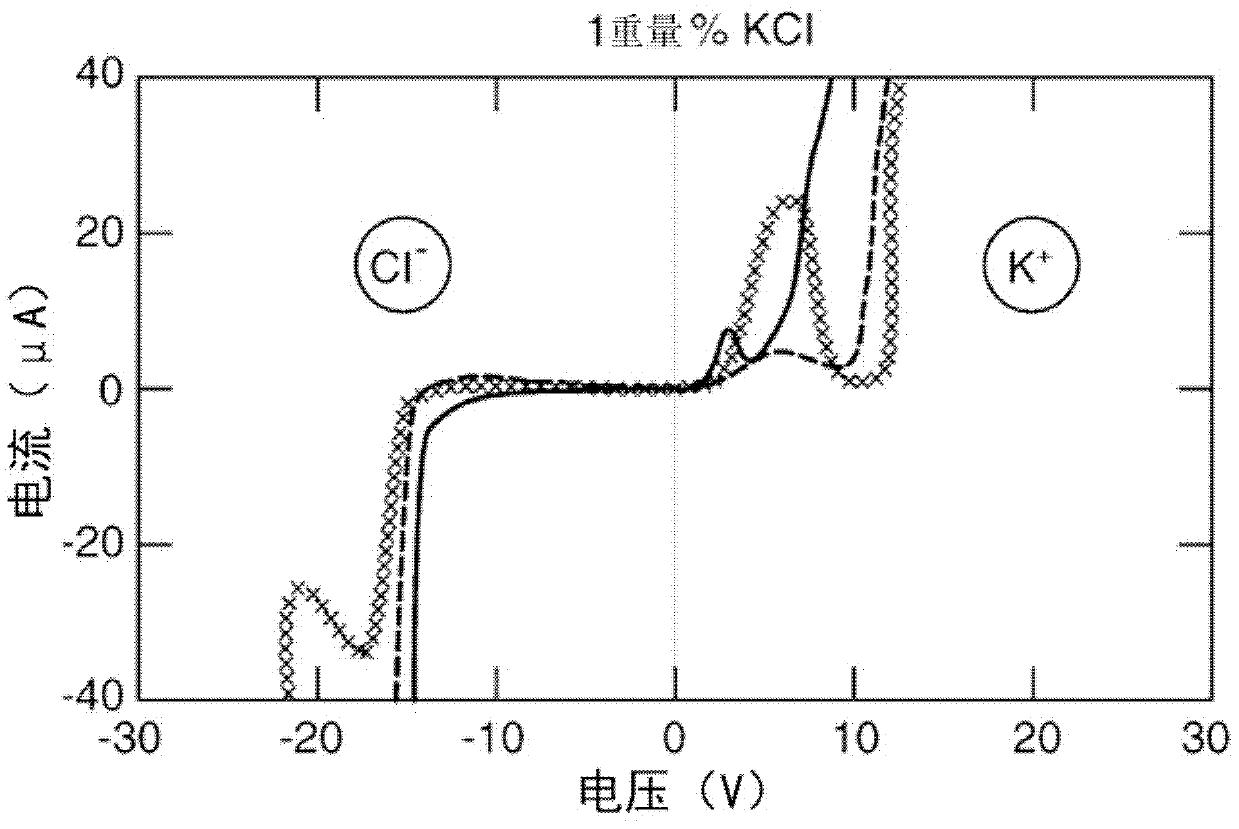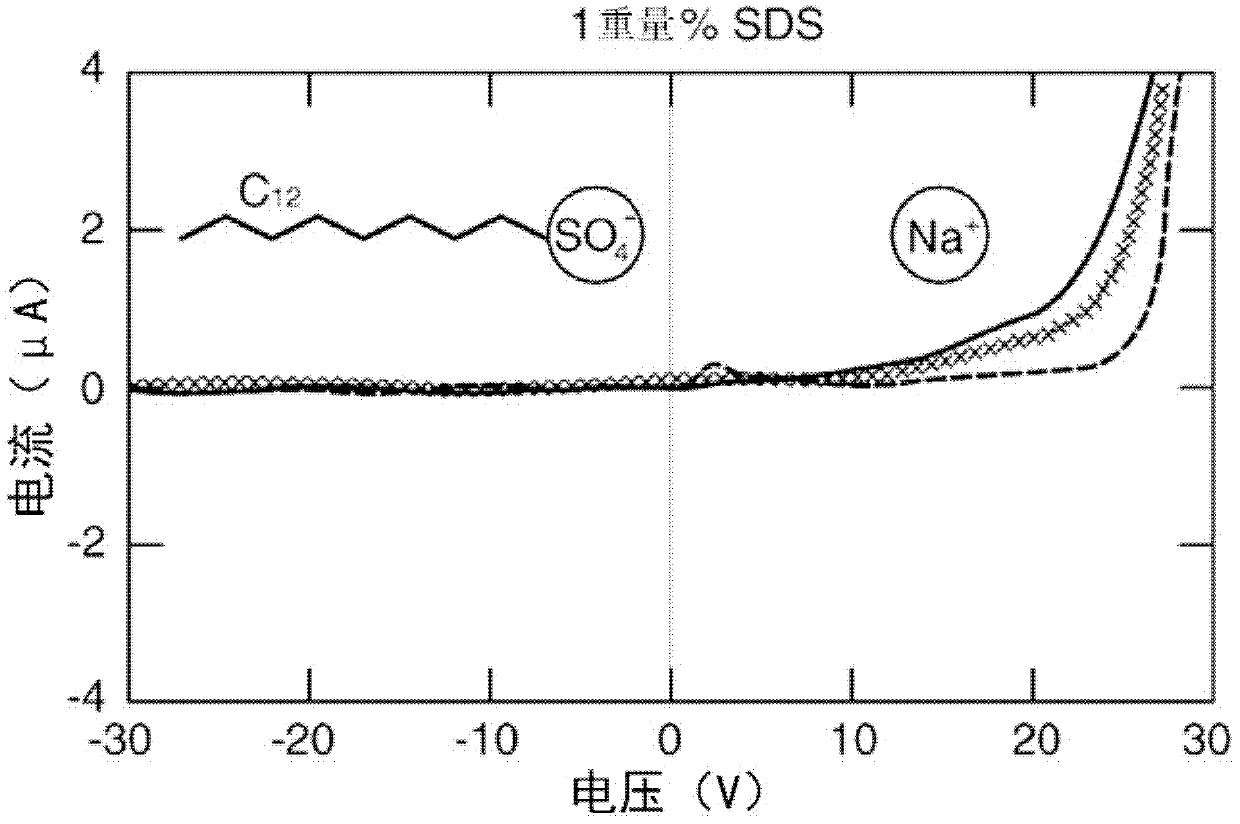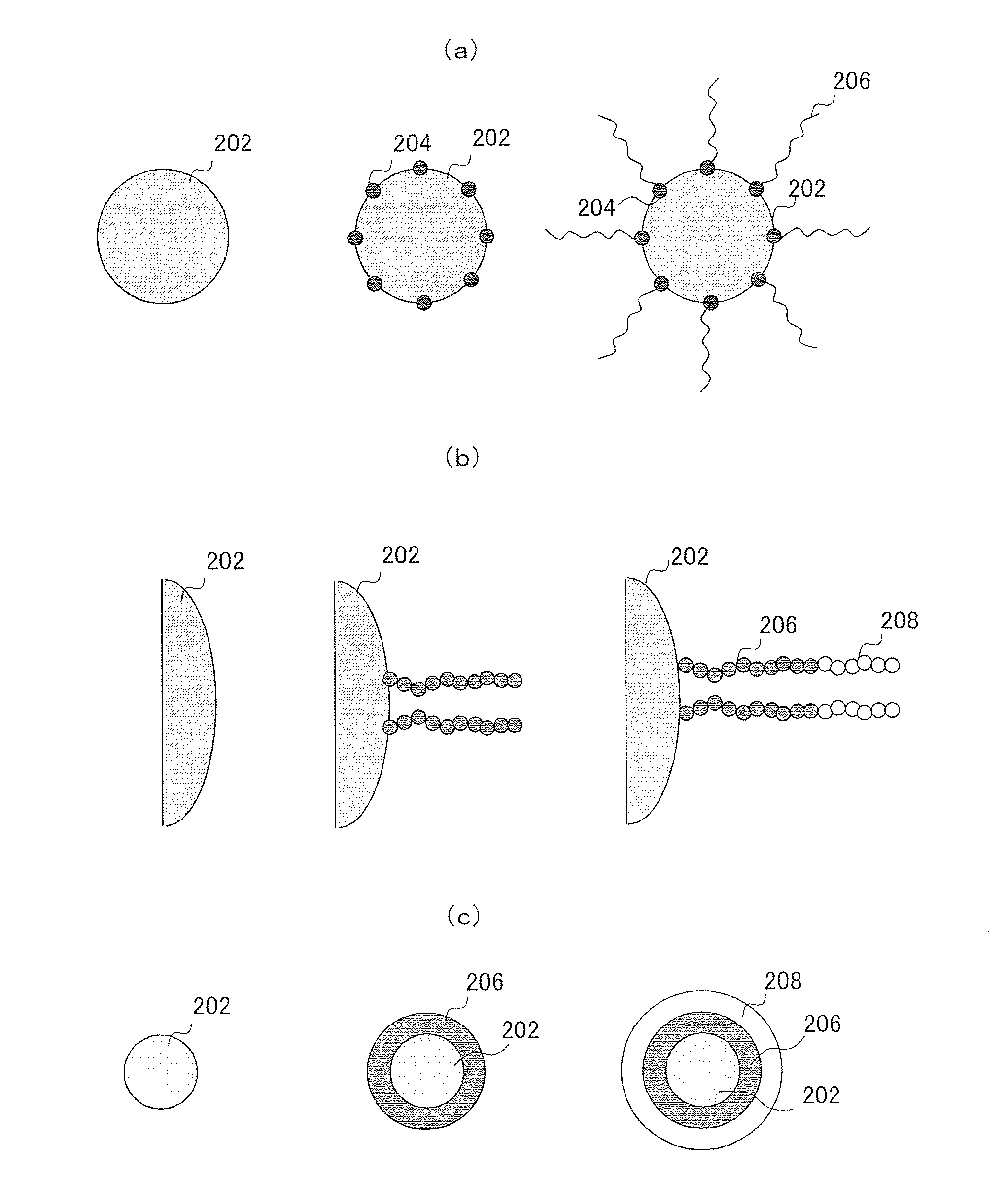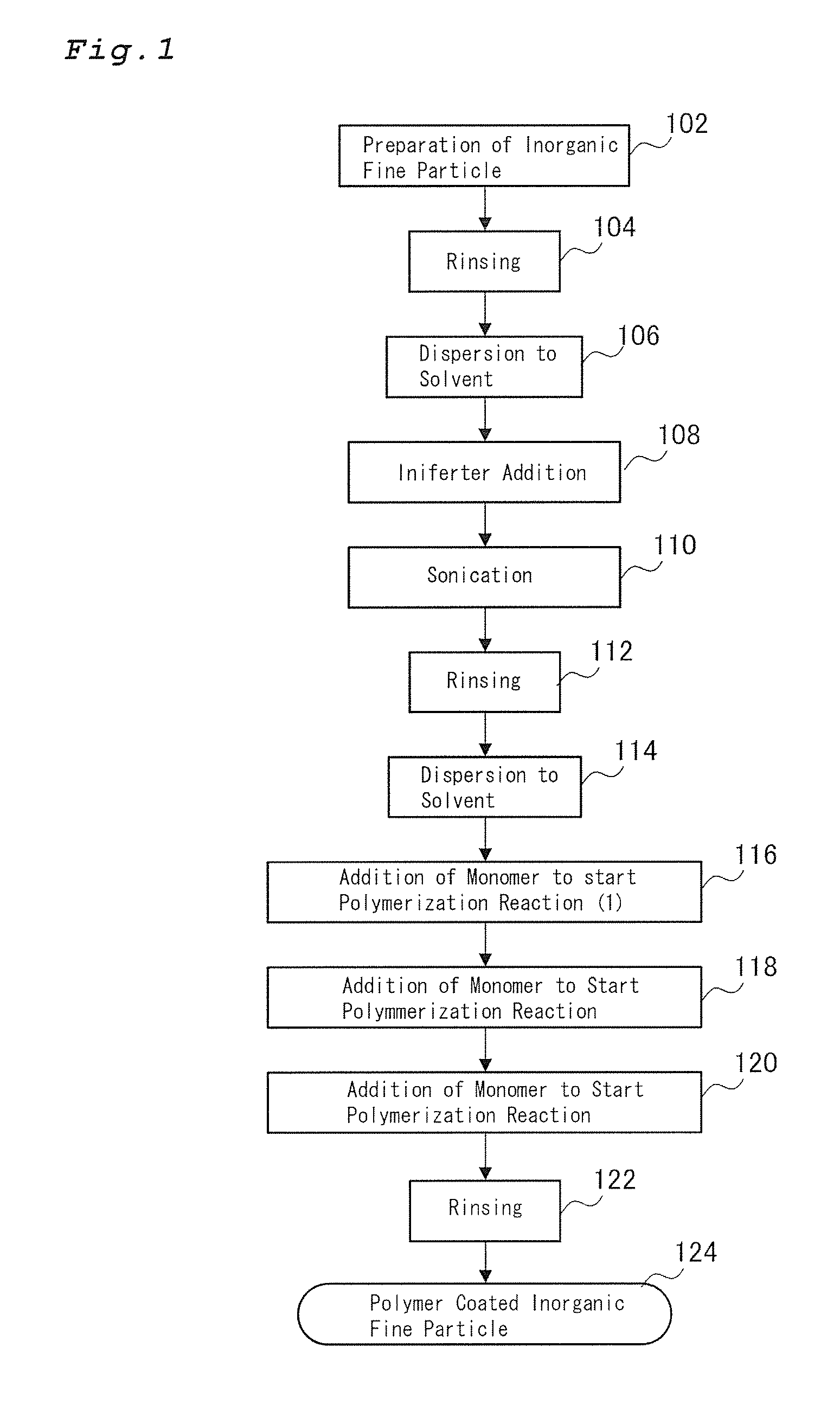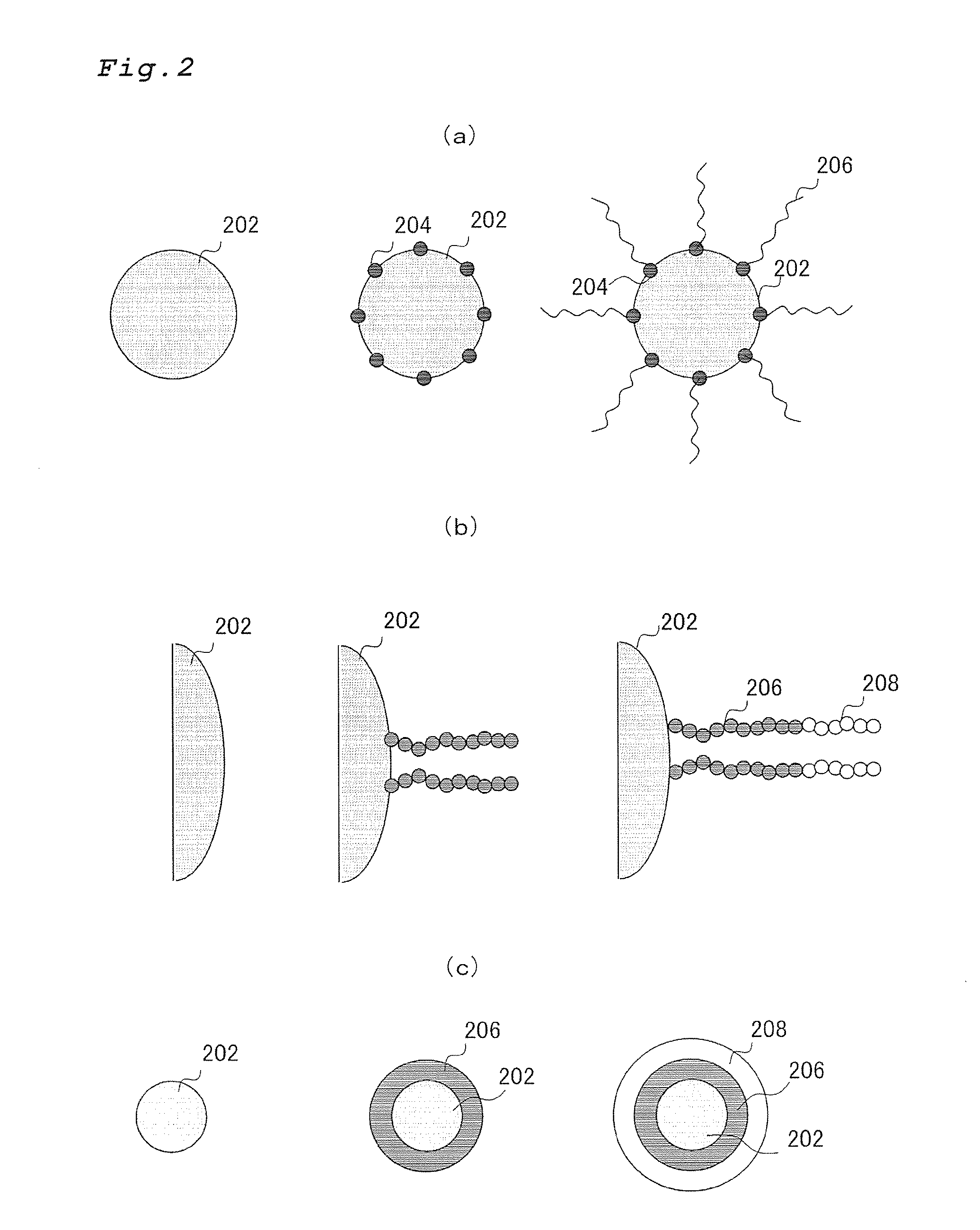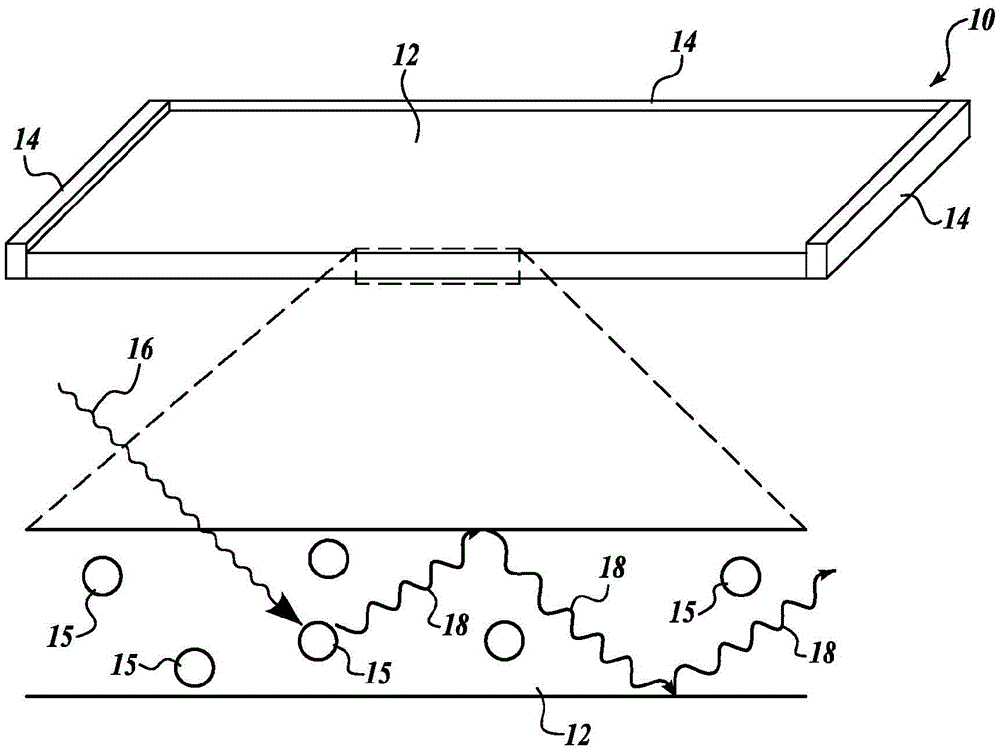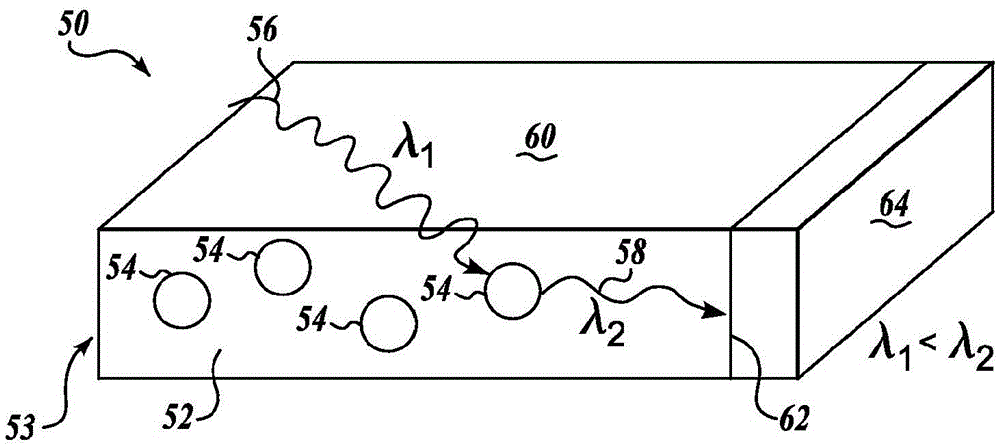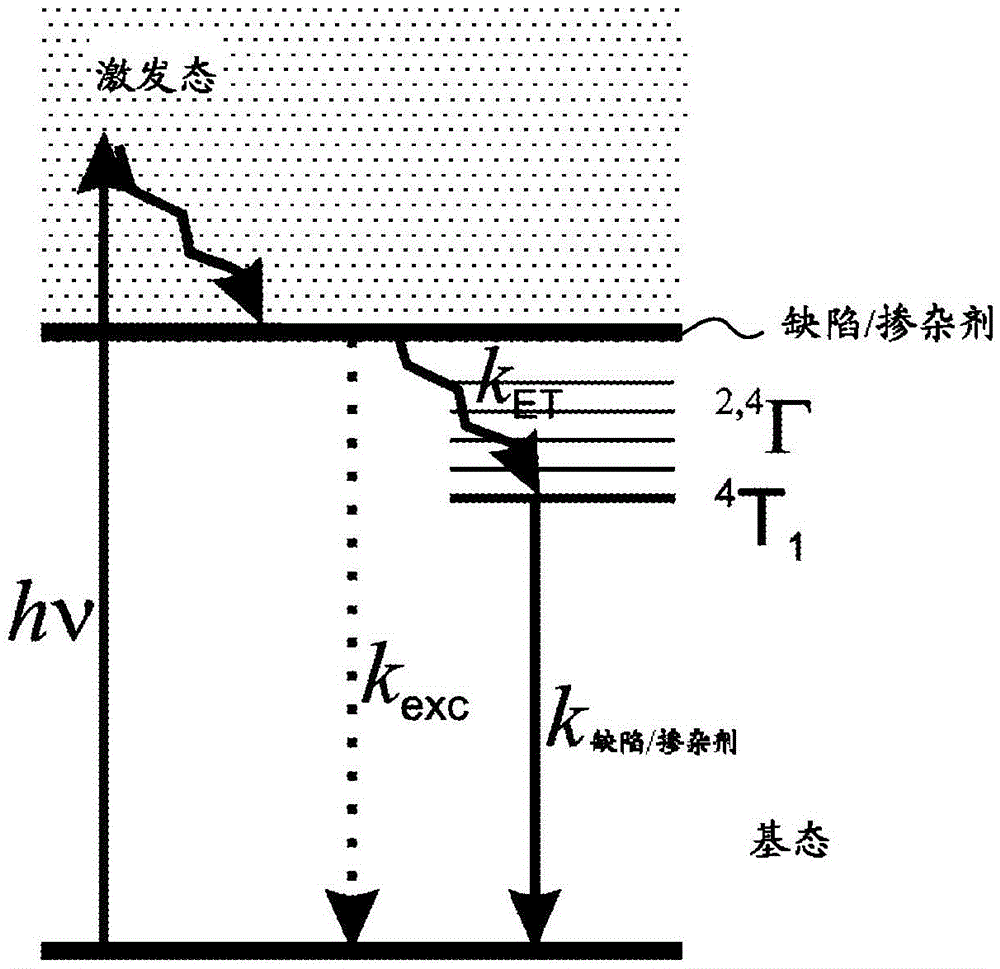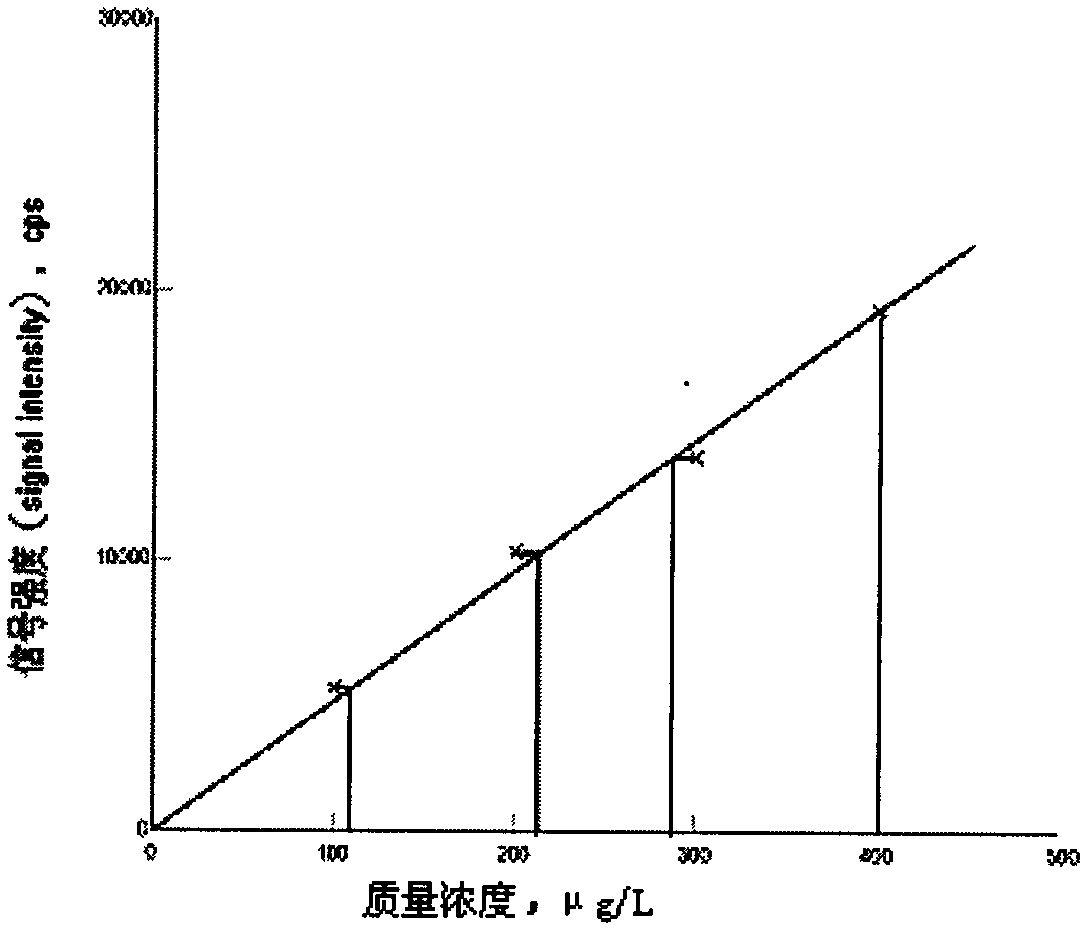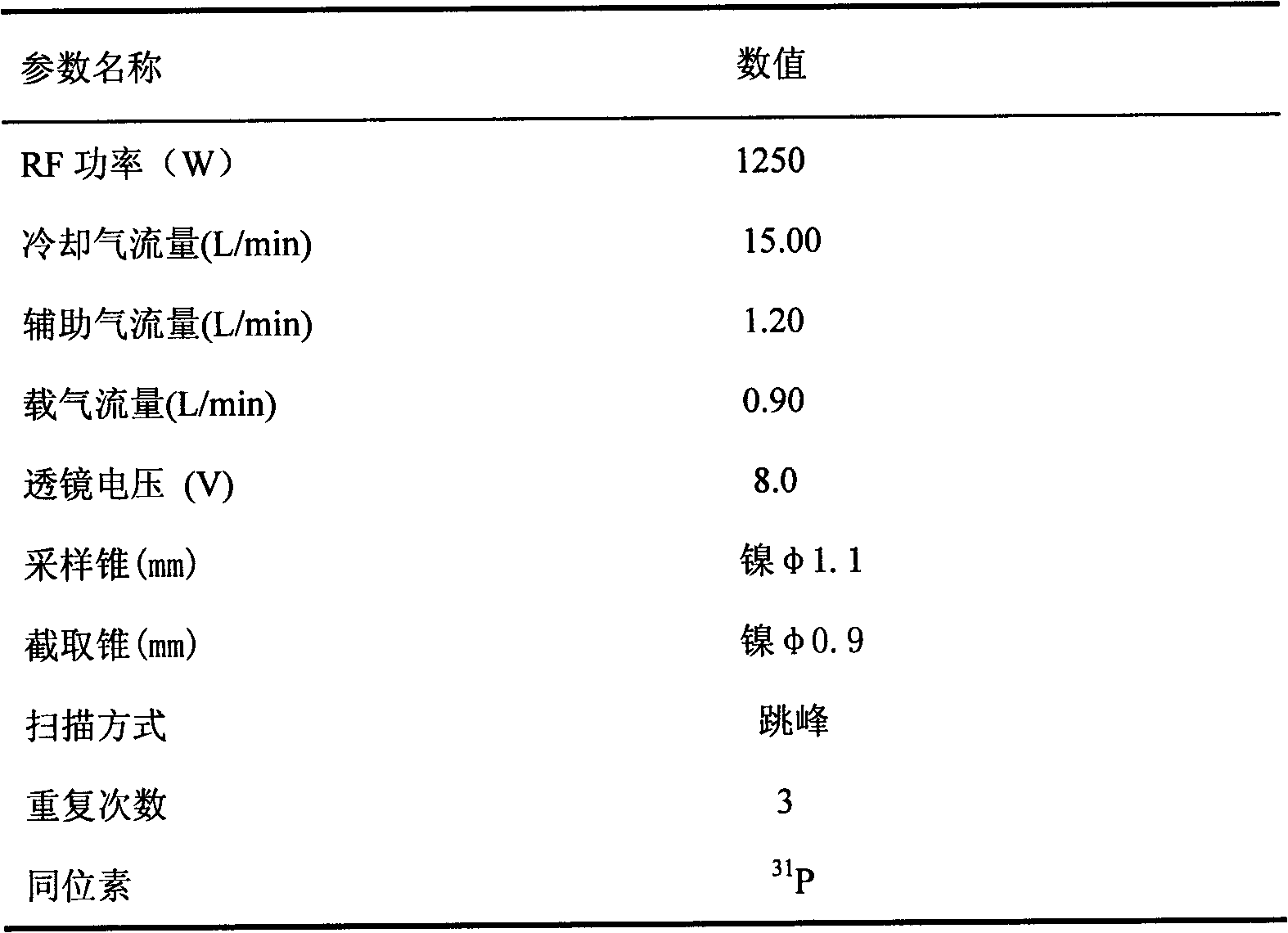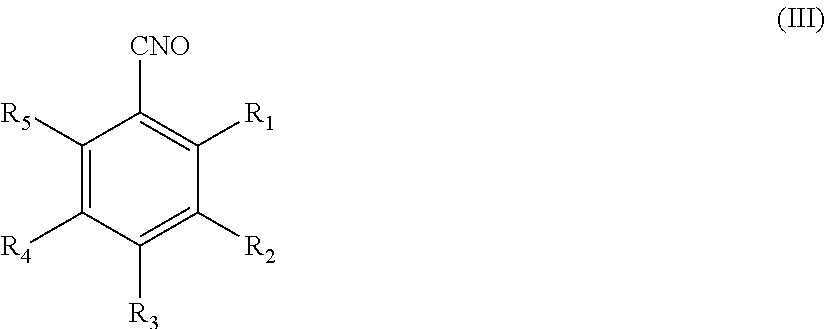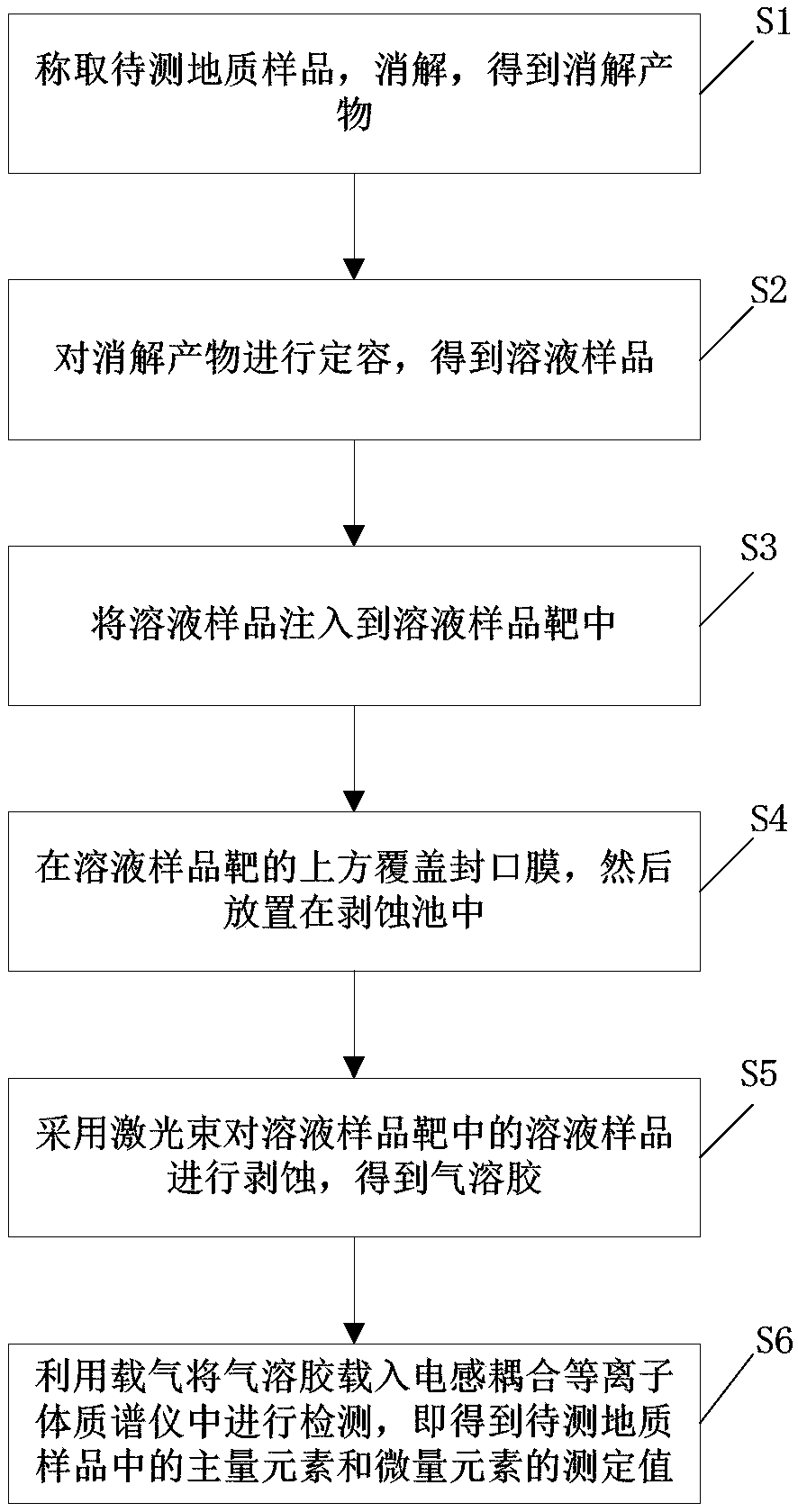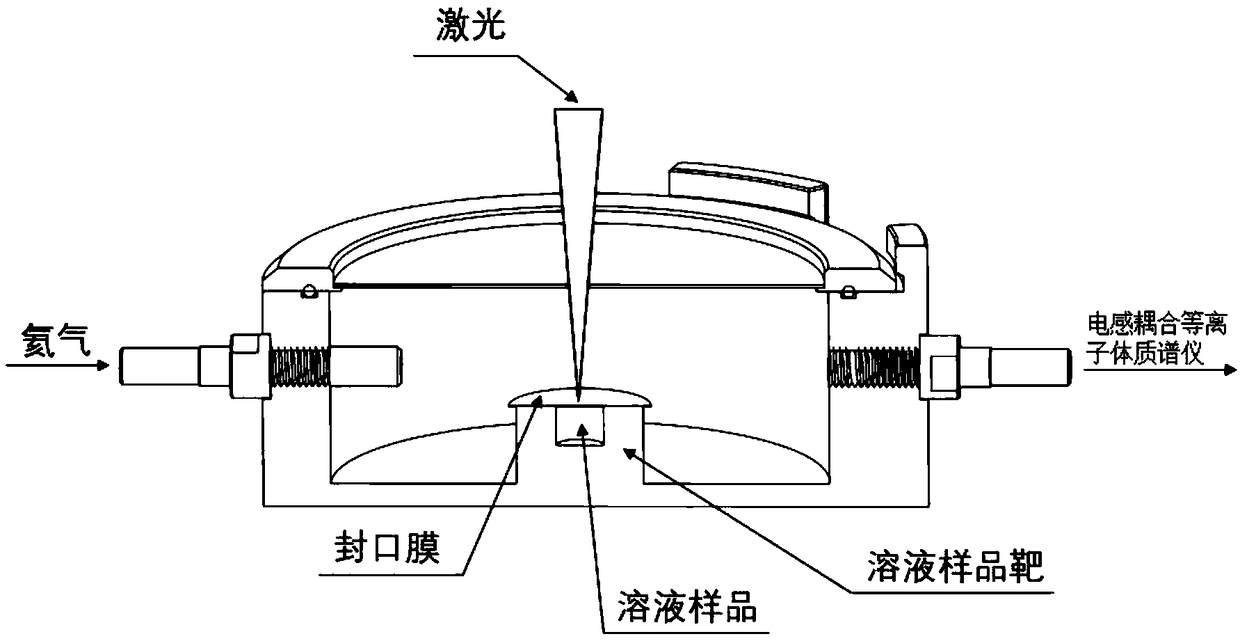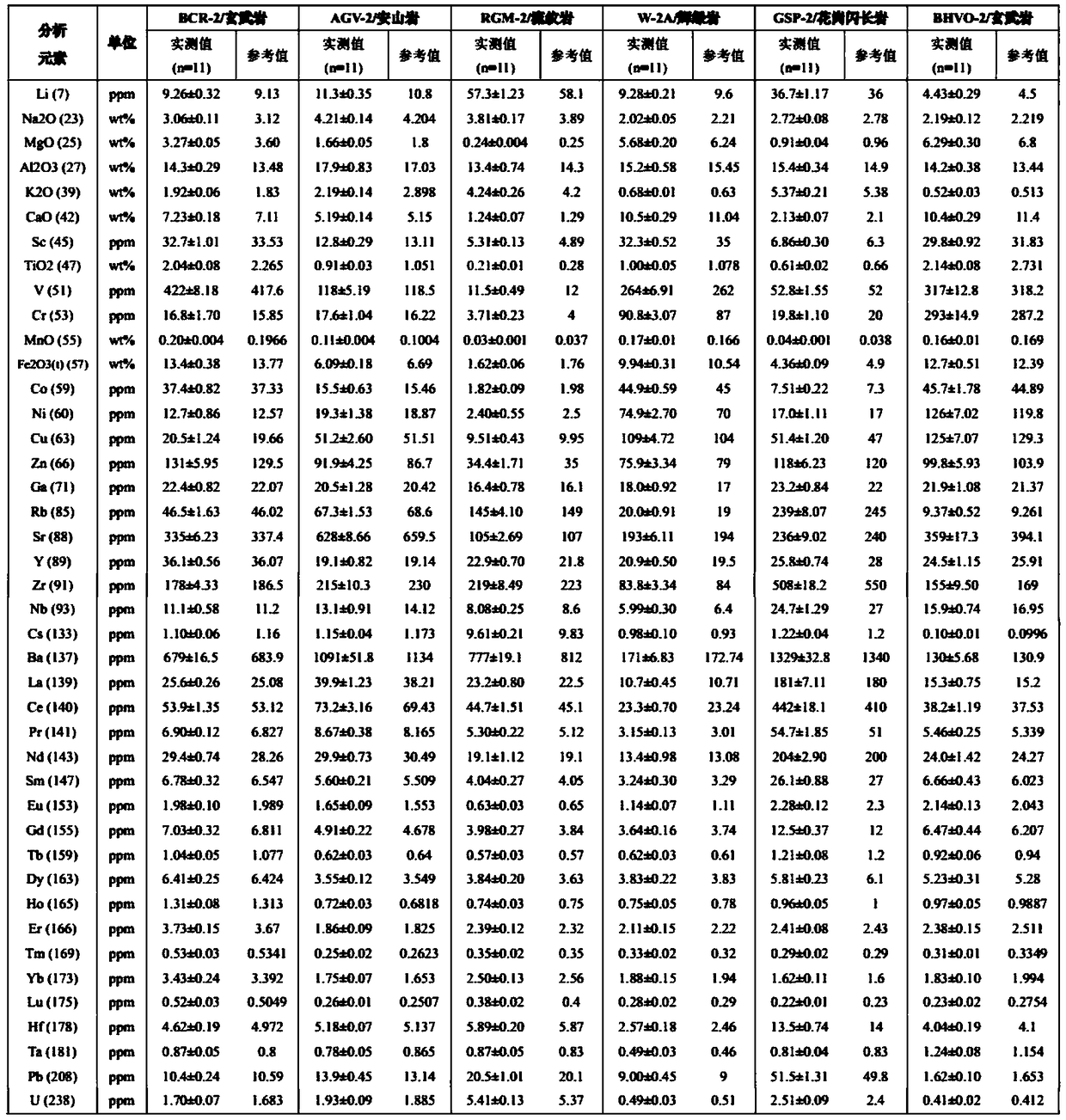Patents
Literature
Hiro is an intelligent assistant for R&D personnel, combined with Patent DNA, to facilitate innovative research.
79 results about "Polyatomic ion" patented technology
Efficacy Topic
Property
Owner
Technical Advancement
Application Domain
Technology Topic
Technology Field Word
Patent Country/Region
Patent Type
Patent Status
Application Year
Inventor
A polyatomic ion, also known as a molecular ion, is a charged chemical species (ion) composed of two or more atoms covalently bonded or of a metal complex that can be considered to be acting as a single unit. The prefix poly- means "many," in Greek, but even ions of two atoms are commonly referred to as polyatomic. In older literature, a polyatomic ion is also referred to as a radical, and less commonly, as a radical group. In contemporary usage, the term radical refers to free radicals that are (not necessarily charged) species with an unpaired electron.
Electrolyte composition, photoelectric conversion device and photo-electrochemical cell
InactiveUS6376765B1Improve rendering capabilitiesIncreased durabilityLight-sensitive devicesOrganic chemistryPhotoelectrochemical cellHydrogen atom
Owner:FUJIFILM HLDG CORP +1
Organic electroluminescent element
ActiveUS20060210831A1Excellent luminous propertiesDischarge tube luminescnet screensElectroluminescent light sourcesPlatinumPolyatomic ion
An organic electroluminescent element comprising a pair of electrodes and at least one organic compound layer including a luminescent layer between the pair of electrodes, wherein at least one of the at least one organic compound layer comprises a compound represented by the following formula (I): wherein in formula (I), Q1 represents an atomic group necessary for forming an unsaturated ring together with the carbon atom; Q2 and Q3 each independently represent an atomic group necessary for forming an unsaturated ring together with the nitrogen atom; X represents a partial structure comprising an atom that is linked to the platinum atom; A1 represents a linking group; B1, B2 and B3 each independently represent a linking group or a single bond; m and n each independently represent 0 or 1; and at least one of m and n is not 1.
Owner:UDC IRELAND
Microwave electric field intensity meter based on cold Rydberg atom interferometer and measuring method thereof
ActiveCN104880614AHigh measurement accuracyMake up for the defect that only point frequency measurement can be realizedElectrostatic field measurementsRydberg atomBeam splitting
The invention discloses a microwave electric field intensity meter based on a cold Rydberg atom interferometer and a measuring method thereof. The microwave electric field intensity meter comprises: a vacuum system, which is used for cooling and trapping atom to generate a cold atom cloud for preparing a Rydberg state and generating an interference effect so as to generate a phase difference by coherent atomic states; a laser, which is used for generating coupling light and detection light and exciting the cold atom in the vacuum system from a ground state to the Rydberg state coherently; a photoelectric detector, which is used for detecting an interference fringe generated by two beams of cold atom clouds due to coherence; and a microwave source, which is used for generating a microwave electric field. According to the invention, when the microwave electric field intensity meter is applied to the evolution process of coherent beam splitting and combination, the atom cloud in the Rydberg state interacts with a to-be-measured microwave electric field, thereby generating an alternating-current stark effect; and the to-be-measured microwave electric field intensity is associated with a phase generated by the an alternating-current stark, thereby realizing precise measurement of the microwave electric field.
Owner:清远市天之衡量子科技有限公司
Optically pumped magnetometer
ActiveUS9964609B2Increase flexibilityElectric/magnetic detectionMeasurements using magnetic resonancePolyatomic ionOptical axis
There is provided an optically pumped magnetometer, in which a pump light having a first wavelength to spin-polarize a first alkali-metal atom group is made to enter a cell containing the first alkali-metal atom group and a second alkali-metal atom group interacting via spin exchange with the first alkali-metal atom group, a probe light having a second wavelength different from the first wavelength to measure spin polarization of the second alkali-metal atom group is made to enter the cell to form the same optical axis as the pump light, a wavelength discrimination unit is provided to discriminate between the pump light and the probe light that passed through the cell depending on a different in wavelength, and the rotation angle of a polarization plane of the probe light that passed through the cell is measured so that the degree of flexibility of the device layout can be increased.
Owner:CANON KK
Aqueous ink
An aqueous ink comprising at least a colorant, a water-soluble organic solvent and a compound represented by general formula (I) shown below, wherein said water-soluble organic solvent stays liquid at a temperature of not higher than 40° C., exhibits a water solubility of not lower than 1% by weight at a temperature of 20° C. and a saturated vapor pressure of not higher than 1.7 Pa at a temperature of 20° C. and is contained in an amount of from 5 to 35% by weight: wherein Y represents a nonmetallic atom group required to form a 5 to 7-membered ring with C And N; X represents a hydrogen atom, oxyradical group, hydroxyl group, alkyl group, alkenyl group, alkinyl group, aryl group, acyl group, sulfonyl group, sulfinyl group, alkoxy group, aryloxy group or acyloxy group; and R1 to R4 may be the same or different and each represent a hydrogen atom or alkyl group, with the proviso that any two of R1 to R4 and Y may be connected to each other to form a 5- to 7-membered ring.
Owner:SEIKO EPSON CORP
Aqueous ink
An aqueous ink comprising at least a colorant, a water-soluble organic solvent and a compound represented by general formula (I) shown below, wherein said water-soluble organic solvent stays liquid at a temperature of not higher than 40° C., exhibits a water solubility of not lower than 1% by weight at a temperature of 20° C. and a saturated vapor pressure of not higher than 1.7 Pa at a temperature of 20° C. and is contained in an amount of from 5 to 35% by weight:wherein Y represents a nonmetallic atom group required to form a 5- to 7-membered ring with C and N; X represents a hydrogen atom, oxyradical group, hydroxyl group, alkyl group, alkenyl group, alkinyl group, aryl group, acyl group, sulfonyl group, sulfinyl group, alkoxy group, aryloxy group or acyloxy group; and R<1 >to R<4 >may be the same or different and each represent a hydrogen atom or alkyl group, with the proviso that any two of R<1 >to R<4 >and Y may be connected to each other to form a 5- to 7-membered ring.
Owner:SEIKO EPSON CORP
Optically pumped magnetometer
ActiveUS20130278253A1Increase flexibilityElectric/magnetic detectionMeasurements using magnetic resonancePolyatomic ionOptical axis
There is provided an optically pumped magnetometer, in which a pump light having a first wavelength to spin-polarize a first alkali-metal atom group is made to enter a cell containing the first alkali-metal atom group and a second alkali-metal atom group interacting via spin exchange with the first alkali-metal atom group, a probe light having a second wavelength different from the first wavelength to measure spin polarization of the second alkali-metal atom group is made to enter the cell to form the same optical axis as the pump light, a wavelength discrimination unit is provided to discriminate between the pump light and the probe light that passed through the cell depending on a different in wavelength, and the rotation angle of a polarization plane of the probe light that passed through the cell is measured so that the degree of flexibility of the device layout can be increased.
Owner:CANON KK
Rubber composition containing a modified elastomer, method for preparing same, and tire containing same
The invention relates to a rubber composition containing at least one diene elastomer, a reinforcing filler, a chemical cross-linking agent, and a modifying agent selected from among the compounds that include at least one group Q and at least one group A bonded together by at least one, and preferably only one, spacer group Sp, where: Q includes a dipole containing at least one, and preferably only one, nitrogen atom; A includes a combined group including at least one nitrogen atom; and Sp is an atom or a group of atoms forming a bond between Q and A. Said composition exhibits a trade-off between mean-deformation stiffness and elongation at break, as well as improved hysteresis properties, and is therefore particularly suitable for the manufacture of tires in order to improve the trade-off between rolling resistance and resistance to large deformations.
Owner:MICHELIN & CO CIE GEN DES ESTAB MICHELIN
Self-organized formation of quantum dots of a material on a substrate
Systems and methods are described for fabricating arrays of quantum dots. A method for making a quantum dot device, includes: forming clusters of atoms on a substrate; and charging the clusters of atoms such that the clusters of atoms repel one another. The systems and methods provide advantages because the quantum dots can be ordered with regard to spacing and / or size.
Owner:UNIVERSITY OF TENNESSEE +1
Atomic space-adjustable dark magnetic optical trap method and device for preparing ultra cold polar molecules
ActiveCN105185425AGuaranteed coincidenceAchieve coincidenceHandling using diffraction/refraction/reflectionPolyatomic ionMagneto-optical trap
The invention relates to an atomic space-adjustable dark magnetic optical trap method and device for preparing ultra cold polar molecules. With the method and device adopted, the technical problem of little possibility for atomic groups to realize space absolute overlap in a current ultra cold polar molecule preparing process can be solved. According to the method and device of the invention, trapping light of A atoms and B atoms are merged into one beam through corresponding optical components; the beam is divided into six beams; the six beams and an inverse helmholtz magnetic field form a magnetic optical trap, so that the overlap ratio of an A atom group and a B atom group trapped by the magnetic optical trap can be significantly enhanced; in a dark magnetic optical trap which is formed by depumping light through adopting a dark point, the intensity ratio of two beams of mixed light can be adjusted through adjusting several wave plates, particular, a third wave plate, and therefore, the work of the overlap of the two atom groups can be controlled, and an ideal condition can be created for the association of the atom groups; a user can know how to adjust the intensity ratio of beams of mixed light through observing atom group images acquired by a CCD image sensor, so that the overlap of the two atom groups can be realized, and the rate and yield of ultra cold polar molecule preparation can be effectively improved.
Owner:SHANXI UNIV
Light-emitting device
InactiveUS7413818B2High luminous efficiencyLow costDischarge tube luminescnet screensElectroluminescent light sourcesHydrogen atomPolyatomic ion
There is provided an organic light-emitting device obtained by using a specific copper coordination compound as a light-emitting material, which has a basic structure in which two copper ions are crosslinked in a ring form by one of atomic groups containing a halogen atom, a sulfur atom, and an nitrogen atom. The light-emitting device provides high luminescence efficiency and high stability at low cost by using an inexpensive copper coordination compound as a light-emitting material.
Owner:CANON KK
Thermal spray coating processes using HHO gas generated from an electrolyzer generator
InactiveUS20080038478A1Not advantageousLiquid surface applicatorsMolten spray coatingMolten stateAuxiliary electrode
A thermal spray coating process for depositing finely divided metallic or nonmetallic materials in a molten or semi-molten condition to form a coating on a substrate wherein the coating material may be powder, ceramic-rod, wire or molten materials. The process involves the use of a gas made from water in an electrolyzer, which includes two principal electrodes and a plurality of supplemental electrodes. The supplemental electrodes are not connected electrically to a power source. The electrolyzer is adapted to separate the water such that its constituents of H and O are not recombined and instead produced jointly to make the single combustible gas composed of combinations of clusters of hydrogen and oxygen atoms structured according to a general formula HmOn wherein m and n have null or positive integer values with the exception that m and n can not be 0 at the same time.
Owner:HYDROGEN TECH APPL
Atomic interference gravity measuring device based on double-matter wave source
ActiveCN106772652ACompact structureGood suppression of magnetic field effectsGravitational wave measurementPhotovoltaic detectorsPolyatomic ion
The invention discloses an atomic interference gravity measuring device based on a double-matter wave source, and belongs to the technical field of atomic interference and gravity exploration. The device comprises a vacuum chamber which is used for providing a sealed container for atomic steam and providing a vacuum environment with the vacuum degree being 10<-8>-10<-7>Pa for the preparation and manipulation of cold atoms. There are two cold atomic cloud preparation structures which are at the same end of an interference area. The device has a simple structure. The center of gravity of the device is low when the device is in a surface working environment. The device is simply supported, and is of high stability. The two cold atomic clouds share a detection laser and a photoelectric detector in the vacuum chamber of a detection area, so that the system complexity is reduced, and common-mode detection error is restrained. Interference is completed in the same slender vacuum chamber, and a magnetic field shielding material can be wrapped easily. There is no cold atom preparation structure between the two atomic clouds. The device has a small self-gravitation effect. Space is reserved for an additional gravity source to calibrate the measurement result. The device needs only one set of detection system, and has good magnetic field effect restraining performance and low quantum projection noise.
Owner:HUAZHONG UNIV OF SCI & TECH
Preparation method of silver alloy composite nanomaterial
ActiveCN107671303AReduce consumptionThe production process is easy to controlTransportation and packagingMetal-working apparatusElectrical conductorAlloy composite
The invention provides a preparation method of a silver alloy composite nanomaterial. The preparation method comprises the following steps of conducting preparation on the combination of silver and atleast one of copper, zinc, magnesium, aluminum and titanium to obtain a composite metal wire rod; gasifying and evaporating the tip end of the metal wire rod of an anode conductor through electric arc formed by a cathode with the composite metal wire rod as the anode conductor of a DC power supply to generate a smoke-like metal radical, and fully mixing silver metal atoms and at least one of copper, zinc, magnesium, aluminum and titanium to form a gaseous alloy; rapidly cooling the gaseous alloy through air flow at 0.5-1.5 hypersonic velocity along with metal gasification; collecting cooled powder to obtain the silver alloy composite nanomaterial. By means of the technical scheme, the silver alloy composite nanomaterial prepared through the preparation method is not prone to agglomerationand grow-up and is more stable and reliable in bactericidal performance. Moreover, the production process is simple and controllable. Energy consumption is little. Scale production is facilitated.
Owner:曹文
METHOD FOR PRODUCING HOT-DIP Zn ALLOY-PLATED STEEL SHEET
ActiveUS20150259776A1Easy to produceImprove productivityHot-dipping/immersion processesPretreated surfacesSheet steelPolyatomic ion
A hot-dip Zn alloy plating layer is formed on a surface of a base steel sheet by immersing the base steel sheet in a hot-dip Zn alloy plating bath containing Al and Mg. An aqueous solution containing one of or two or more of polyatomic ions selected from the group consisting of a polyatomic ion including V5+, a polyatomic ion including Si4+, and a polyatomic ion including Cr6+ is then contacted with a surface of the hot-dip Zn alloy plating layer. The aqueous solution contains the polyatomic ion in a concentration of 0.01 g / L or more in terms of one of or two or more of atoms selected from the group consisting of V, Si, and Cr.
Owner:NISSHIN STEEL CO LTD
Phase detection method of cold atom Bose-Einstein condensation vortex superposed-state gyroscope
ActiveCN106871888ASimple structureLight in massTurn-sensitive devicesPotential wellScattering effect
The invention relates to a phase detection method of a cold atom Bose-Einstein condensation vortex superposed-state gyroscope. Superposed-state vortex light is emitted into a Bose-Einstein condensation state gas atom cluster to enable the Bose-Einstein condensation (BEC) atom cluster to obtain a certain orbital angular momentum, and stable vortex superposed-state matter waves are generated; the BEC atom cluster in a potential well is equivalent to a matter wave interference gyroscope. Atom density distribution of the BEC forms a stable gyroscope pattern; when the system rotates at a certain angular speed, a certain phase is generated due a Sagnac effect; each atom has a fixed scattering effect on photons; after detection light is added, a whole resonance absorption image is detected through a charge coupled device (CCD) and scattering light intensity is calculated through space calculation and time calculation; density distribution of the BEC atom cluster is reckoned so as to obtain phase information; relative light intensity change can be obtained through space subtraction, is used as a gyroscope signal and is used for reckoning a system angular speed, so that the sensitivity on the system angular speed is realized.
Owner:PLA PEOPLES LIBERATION ARMY OF CHINA STRATEGIC SUPPORT FORCE AEROSPACE ENG UNIV
Low molecular weight amino latent crosslinker and spray polyurea elastomer thereof
InactiveCN101608025AReduce crosslinkingReduced activityPolyurea/polyurethane coatingsElastomerElectronegativity
The invention relates to a low molecular weight amino latent crosslinker, which is formed by urea or mixture of urea and low molecular weight polyamine. The low molecular weight polyamine is aliphatic or aromatic diamine or triamine. The diamine is dicyandiamide and the triamine is melamine; and the urea and the melamine are mixed according to a weight ratio of 2:1. A spray polyurea elastomer is generated by reaction of an isocyanate component (A component) and an amino compound (B component); the amino compound of the B component comprises amine-terminated resin, an amine-terminated chain extender and a low molecular weight amino latent crosslinker accounting for 0.1% to 5% of the B component. The low molecular weight amino latent crosslinker has easily-obtained materials, convenient processing and relative cheap price, and can reduce the cost of SPUA. As the low molecular weight polymer amine is influenced by ortho-atoms or atom groups, electronegativity of nitrogen atoms in the amino group is reduced, thus utilizing the electron effect to reduce the reactivity of the amino groups and isocyanate.
Owner:北京立高科技股份有限公司 +1
Fluorescent sensor for phosphate ion and phosphorylated peptide
InactiveUS7521250B2Peptide/protein ingredientsMaterial analysis by observing effect on chemical indicatorPolyatomic ionPhosphate ion
Disclosed is a fluorescent sensor for phosphate ion and phosphorylated peptide, which comprises a phosphate anion-selective fluorescent compound expressed by the following general formula (1). In the formula (1), FL represents a fluorescent functional group or atomic group having an aromatic ring or heterocyclic ring (for example, dimethylanthlyl group), and X represents a functional group or atomic group which will be liberated in an aqueous solution to form an anion (for example, NO3):
Owner:JAPAN SCI & TECH CORP
Method for spraying cracked selenium source on surface of substrate
InactiveCN102433550AHigh reactivityImprove photoelectric conversion efficiencyFinal product manufactureChemical vapor deposition coatingIndiumAtomic cluster
The invention relates to a method for spraying a cracked selenium source on the surface of a substrate. The method comprises the following steps: entering selenium steam into a high-temperature cracking chamber; penetrating the selenium steam through two layers of porous grid plates with uniformly distributed pores, the pore diameter of which is 0.2-0.5mm, in the high-temperature cracking chamber, so that the selenium source forms cracked selenium source; and spraying the cracked selenium source to the surface of the substrate so as to complete the process of spraying the cracked selenium source on the surface of the substrate. According to the method provided by the invention, the selenium steam is adopted to penetrate through the two layers of porous grid plates at high temperature, and a large Sen (n is more than or equal to 5) atomic cluster is cracked to form a small Sen (n is less than 5) atomic cluster, thereby increasing the quantity of high-activity Se2, improving the reaction activity of a selenium element, effectively improving the film-forming quality of a CIGS (copper indium gallium selenium) layer of a CIGS film solar battery and taking an positive effect on improvement of photoelectric conversion efficiency of the CIGS film solar battery; and the selenium steam with the small atomic cluster is directly sprayed to the surface of the substrate through spray orifices, so that a selenium material can sufficiently participate in the reaction film-forming process of the CIGS layer, thereby improving the utilization rate of the selenium material.
Owner:CHINA ELECTRONIC TECH GRP CORP NO 18 RES INST
Silicone based dielectric coatings and films for photovoltaic applications
Owner:DOW CORNING CORP
Colored conductive fluids for electrowetting and electrofluidic technologies
Colored conductive fluids for electrowetting or electrofluidic devices, and the devices themselves, are disclosed. The colored conductive fluid includes a polar solvent and a colorant selected from a pigment and / or a dye. The polar solvent has (a) a dynamic viscosity of 0.1 cP to 1000 cP at 25 DEG C, (b) a surface tension of 25 dynes / cm to 90 dynes / cm at 25 DEG C, and (c) an electrowetting relative response of 20% to 80%. The colored conductive fluid itself can have an electrical conductivity from 0.1[mu]S / cm to 3,000 [mu]S / cm and can have no greater than 500 total ppm of monatomic ions with ionic radii smaller than 2.0AA and polyatomic ions with ionic radii smaller than 1.45AA. The colored conductive fluid should not cause electrical breakdown of a dielectric in the device in which it is employed. An agent for controlling electrical conductivity can optionally be added to the colored conductive fluid.
Owner:SUN CHEM CORP
Polymer coated inorganic fine particle and method for preparing the same
InactiveUS20110006245A1Easy to controlRemove unnecessary ingredientSilicon organic compoundsMaterial nanotechnologyPolyatomic ionHydrogen atom
An object of the present invention is to provide a polymer coated magnetic fine polymer by coating an inorganic fine particle with a thin polymer layer under precise control of a polymerization reaction and a method for preparing the same. Onto a surface of the inorganic fine particle the iniferter is fixed and grafted chains are formed on the inorganic fine particle by a living radical polymerization using the iniferter as an initiator which is defined by the following chemical formula:(wherein X is a hydrophilic atomic group being capable of binding to a surface of the inorganic fine particle, R1 and R2 are each independently selected from a mono-valent hydrocarbyl group which is formed by removing one hydrogen atom from hydrocarbon.)
Owner:TAMAGAWA SEIKI CO LTD
Photoluminescent semiconductor nanocrystal-based luminescent solar concentrators
The present disclosure describes luminescent solar concentrators that include photoluminescent nanoparticles. The photoluminescent nanoparticles include a semiconductor nanocrystal that sensitizes the luminescence of a defect. The defect can include, for example, an atom, a cluster of atoms, or a lattice vacancy. The defect can be incorporated into the semiconductor nanocrystal, adsorbed onto, or otherwise associated with the surface of the semiconductor nanocrystal.
Owner:WESTERN WASHINGTON UNIVERSITY +1
Method for determining content of phosphor in ferrotungsten
InactiveCN102830154AEasy to makeShort analysis timePreparing sample for investigationMaterial analysis by electric/magnetic meansPolyatomic ionPhosphor
The invention discloses a method for determining the content of phosphor in ferrotungsten and especially relates to a method for determining the content of phosphor in ferrotungsten by the utilization of an inductively coupled plasma mass spectrometer (ICP-MS). The method comprises the following concrete processes: a, sample processing; b, preparation of a blank solution; c, preparation of a standard solution of a working curve; and d, testing and data processing. According to the invention, separation of phosphor and a matrix is not required; the preparation process of a test solution is simple; analysis time is shortened; material cost is saved; and the pollution of a toxic reagent beryllium salt used in a traditional analysis method to experimenters and the environment is avoided. The method is nontoxic and harmless to experimenters and will not lead to environmental pollution problems. The detection process is simple, and polyatomic ion interference existing in the detection process can be eliminated by a matrix matching method.
Owner:ANGANG STEEL CO LTD
1,3-dipolar compound bearing an imidazole functional group
In a 1,3-dipolar compound of formula Q-A-B, Q comprises a dipole containing at least and preferably one nitrogen atom, A, which is preferably divalent, is an atom or a group of atoms connecting Q to B, and B comprises an imidazole ring. An unsaturated polymer modified by grafting the 1,3-dipolar compound is also disclosed.
Owner:MICHELIN & CO CIE GEN DES ESTAB MICHELIN
Laser-based solution ablation injection analysis method
ActiveCN109444248AReduce distractionsReduce yieldParticle separator tubesPreparing sample for investigationInductively coupled plasmaSolvent
The invention provides a laser-based solution ablation injection analysis method. The method comprises the steps as follows: weighing a to-be-tested geological sample and digesting to obtain a digestion product; subjecting the digestion product to constant volume to obtain a solution sample; injecting the solution sample into a solution sample target; covering the upper part of the solution sampletarget with a sealing film, and then placing the sealed solution sample target in an ablation pool; ablating the solution sample in the solution sample target by adopting a laser beam to obtain aerosol; and loading the aerosol into an inductively coupled plasma mass spectrometer by utilizing a carrier gas for detection, thereby obtaining measured values of major elements and trace elements in theto-be-tested geological sample. By adopting the method provided by the invention, the problems of solvent-related polyatomic ion interference and sample matrix effect in the ICP-MS (Inductively Coupled Plasma Mass Spectrometer) analysis of major elements and trace elements injected by adopting a conventional solution atomization method are overcome, and a simple, environmentally-friendly and novel injection method with a film-dissolving effect is provided for analyzing solution samples by the ICP-MS.
Owner:CHINA UNIV OF GEOSCIENCES (WUHAN)
Method for measuring isotopic abundance ratio of uranium in particles through accelerator mass spectrometry
InactiveCN104535598AImprove accuracyEliminate distractionsPreparing sample for investigationMaterial analysis by measuring secondary emissionMass spectrometry measurementMicroparticle
The invention relates to a control device for the irradiation dose of an irradiation device, and provides a method for measuring the isotopic abundance ratio of uranium in particles through accelerator mass spectrometry. The method aims to solve the problems that an analysis method for the isotopic abundance ratio of uranium in existing environment sample particles is not high in analysis result accuracy, and interference is serious in the analysis process. The method comprises the following steps that 1, the sample particles are separated from a carrier and transferred to a graphite flake through ultrasonic oscillation; 2, the sample particles are transferred into a scanning electron microscope; 3, the uranium-bearing particles are found; 4, the uranium-bearing particles are dissolved; 5, a target is manufactured; 6, ruling is carried out; 7, accelerator parameters needed by each uranium isotope are determined; 8, the counting rate of each uranium isotope is measured; 9, the isotopic abundance ratio of the uranium is calculated. The problem that isotopic abundance ratio analysis of the uranium in the particles has polyatomic ion interference is solved, abundance sensitivity is obviously improved, the obtained analysis result is accurate, and the defect in an existing analysis method is overcome.
Owner:CHINA INSTITUTE OF ATOMIC ENERGY
Method of activating two-dimensional materials for multivalent/polyatomic-ion intercalation battery electrodes
InactiveUS20180183038A1Increase capacityExcellent rate performanceElectrode manufacturing processesSecondary cellsSolvent moleculePolyatomic ion
A method for activating two-dimensional host materials for a multivalent / polyatomic ion battery may include adding a pillaring salt in electrolyte. This process may be followed by in-situ electrochemically intercalating the pillaring ions, solvent molecules and multivalent ions into the van der Waals gap of host materials. After the activation process, the host material is transformed into an interlayer-expanded 2D material with significantly enhanced specific capacity and rate performance for multivalent ion intercalation.
Owner:UNIV HOUSTON SYST
Nanosecond reversible phase transformation material and method for measuring phase transformation mechanism of same
ActiveCN102255044AFast reversible phase transitionMaterial analysis using wave/particle radiationElectrical apparatusPolyatomic ionNanosecond
The invention discloses a nanosecond reversible phase transformation material and method for measuring a phase transformation mechanism of the same. The nanosecond reversible phase transformation material has the property of generating nanosecond reversible transformation under the single action of multiple external factors or combined action of the multiple external factors. The multiple external factors include electric field, pressure and temperature; the nanosecond reversible transformation is reversible change between order distribution and disorder distribution of atoms, atom groups or molecules inside the nanosecond reversible phase transformation material so that the nanosecond reversible phase transformation material macroscopically presents a phase transformation process generated between a crystalline state and an amorphous state, the time spent by the phase transformation process is within 0.1-1000 nanoseconds, wherein the crystalline state of the material is of a lattice structure of a cubic system; meanwhile, the material has a stable high-temperature solid phase, a stoichiometric ratio of electric neutrality, P orbit ionization degree of 0.02<r sigma'<0.31 and s-p orbit hybridization degree of 1.6<rpi-1<2.5. The invention also provides a method for measuring the phase transformation mechanism by adopting experiment means, which can be applied to the explanation of the phase transformation mechanism of the material and prediction of the phase transformation property of the material and design of a novel phase transformation material.
Owner:SHANGHAI INST OF MICROSYSTEM & INFORMATION TECH CHINESE ACAD OF SCI
Method for detecting ion content of fourteen trace impurity rare earth metals and ten trace impurity non-rare earth metals in ultra-high purity ytterbium compound
InactiveCN108693168AHigh test sensitivityEasy to operateAnalysis by electrical excitationRare-earth elementIon content
The invention discloses a method for detecting the ion content of fourteen trace impurity rare earth metals and ten trace impurity non-rare earth metals in an ultra-high purity ytterbium compound. Themethod utilizes a triple quadrupole tandem inductively coupled plasma mass spectrometer to detect and comprises: 1, sample pretreatment, 2, working curve solution preparation, 3, working curve drawing, 4, measurement of the ion content of fourteen trace impurity rare earth metals and ten trace impurity non-rare earth metals in a sample solution, and 5, calculation. The method is easy to operate,has high test sensitivity, is free of mathematical formula correction data, solves the problem that the existing detection method easily causes severe mass spectrometry interference to the rare earthelement production through polyatomic ions formed by the ytterbium matrix and solves the problem that the existing detection method cannot carry out direct inductively coupled plasma mass spectrometrydetection on calcium and iron.
Owner:INST OF CHEM MATERIAL CHINA ACADEMY OF ENG PHYSICS +1
Features
- R&D
- Intellectual Property
- Life Sciences
- Materials
- Tech Scout
Why Patsnap Eureka
- Unparalleled Data Quality
- Higher Quality Content
- 60% Fewer Hallucinations
Social media
Patsnap Eureka Blog
Learn More Browse by: Latest US Patents, China's latest patents, Technical Efficacy Thesaurus, Application Domain, Technology Topic, Popular Technical Reports.
© 2025 PatSnap. All rights reserved.Legal|Privacy policy|Modern Slavery Act Transparency Statement|Sitemap|About US| Contact US: help@patsnap.com
